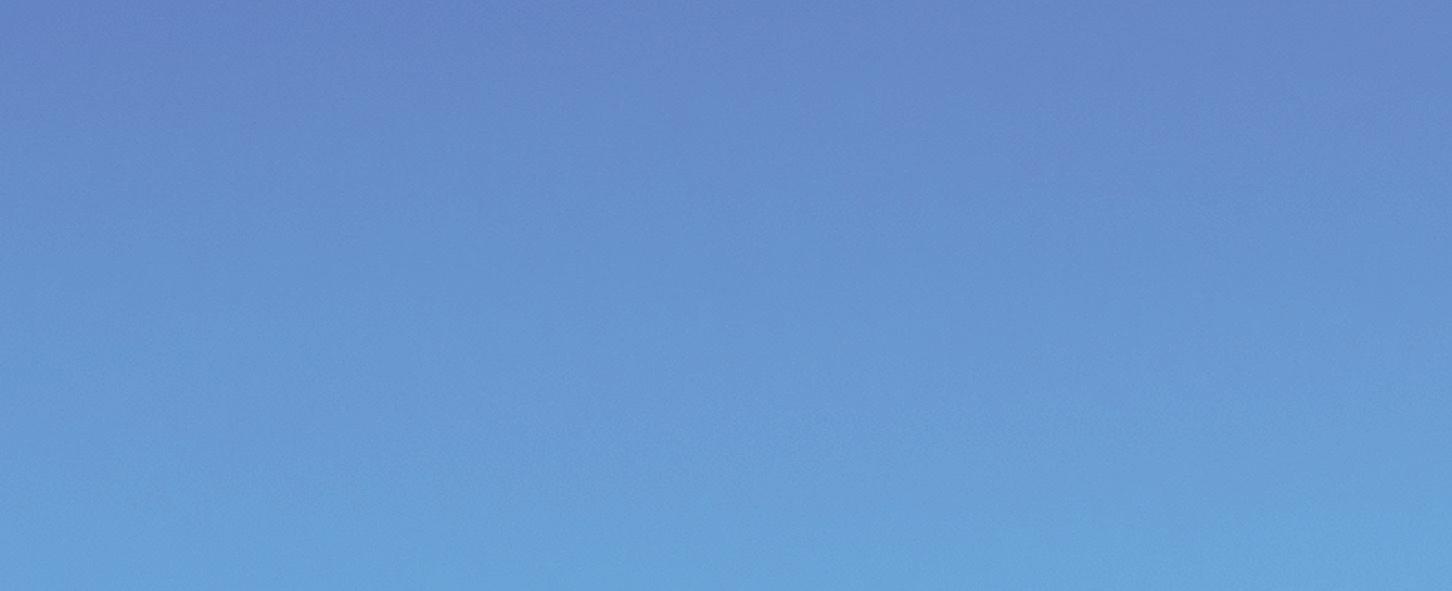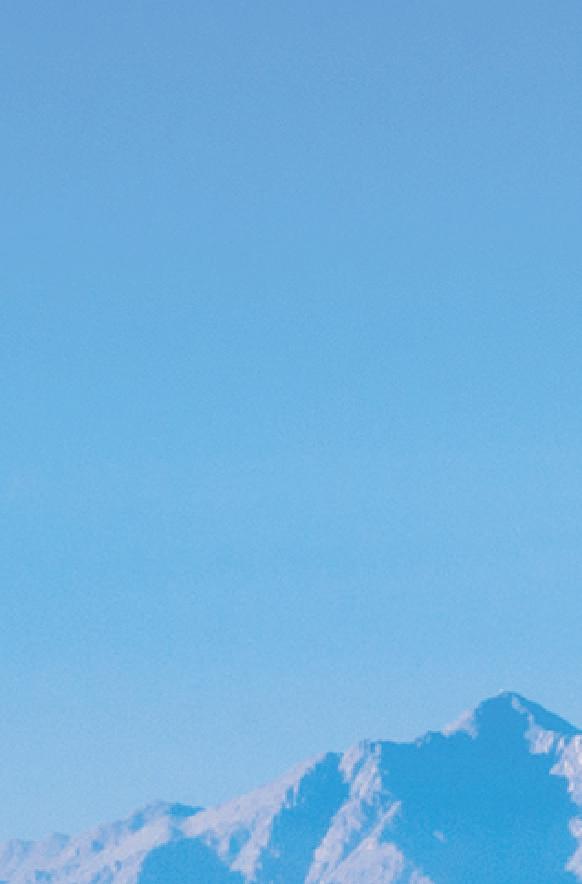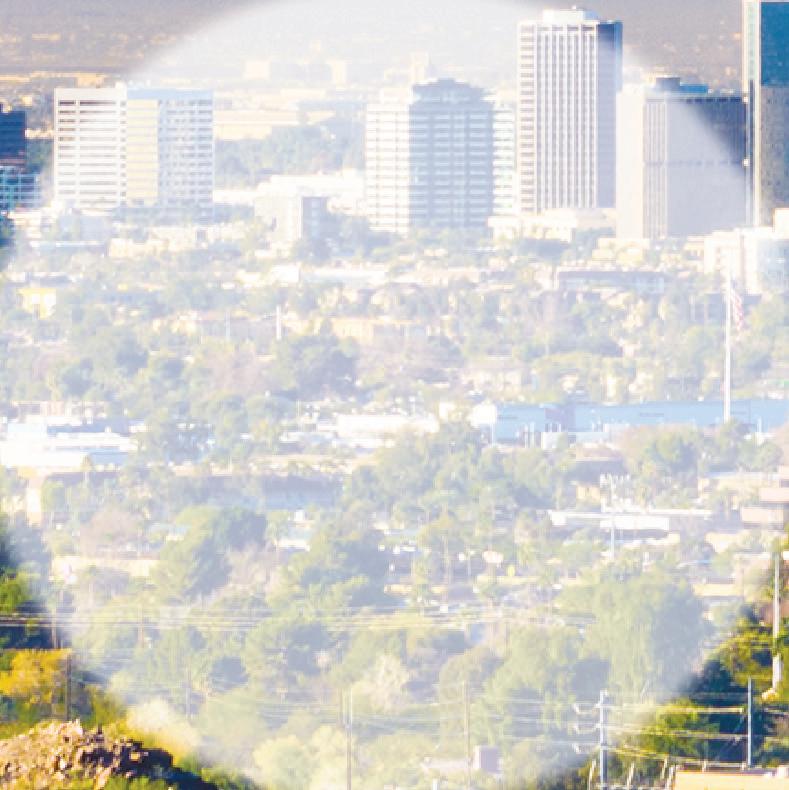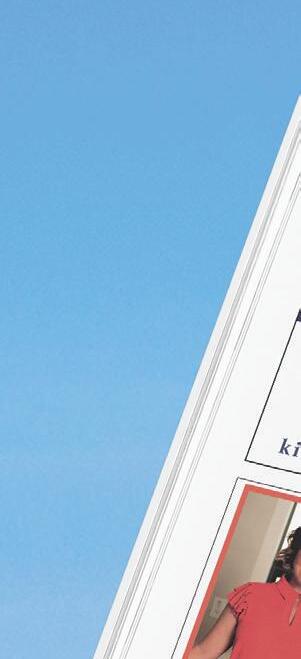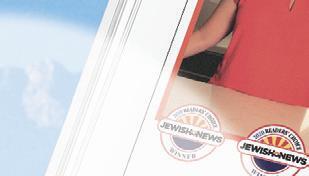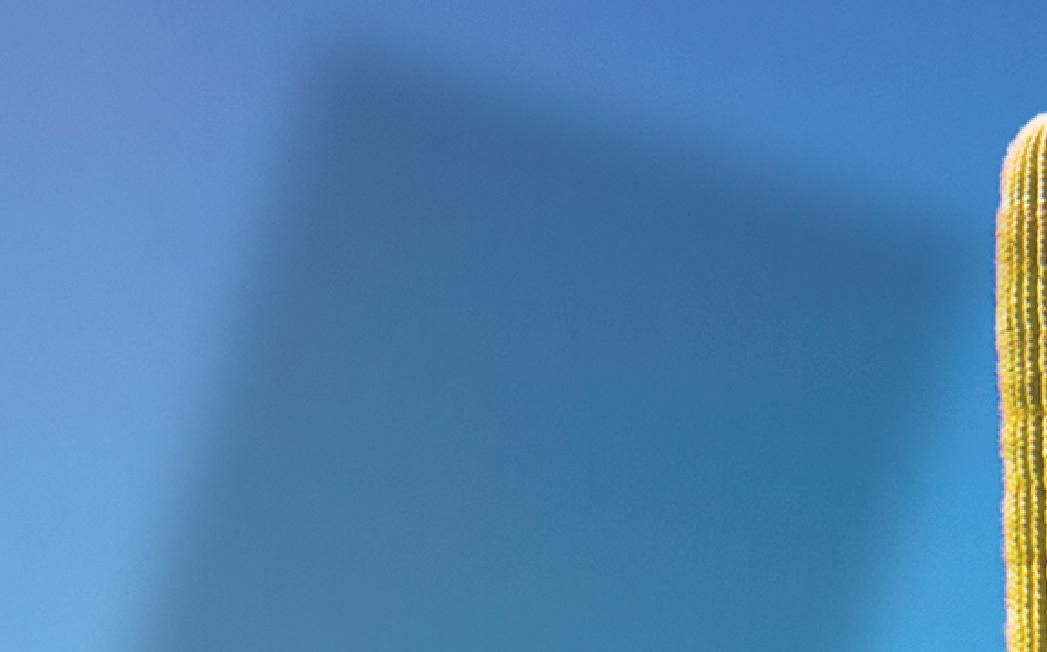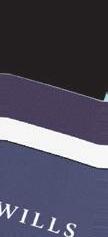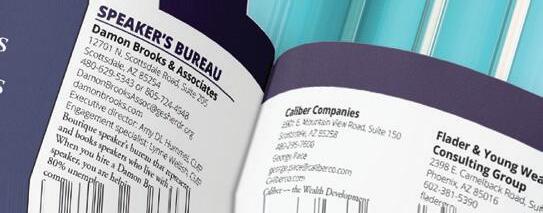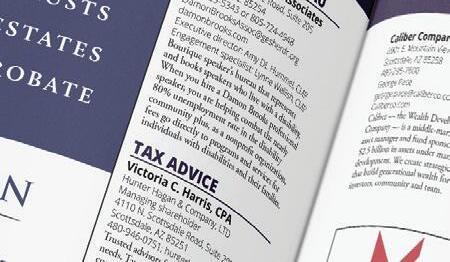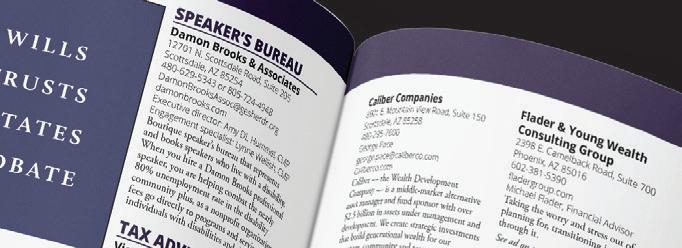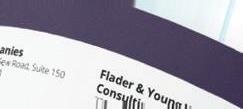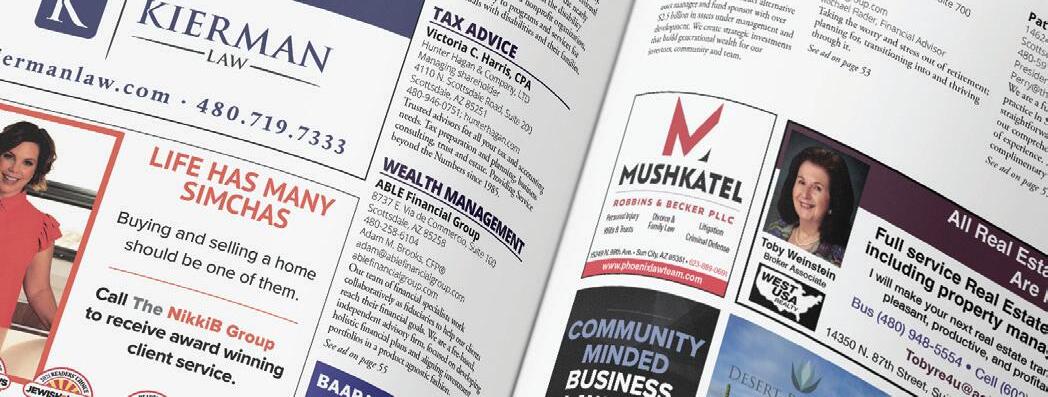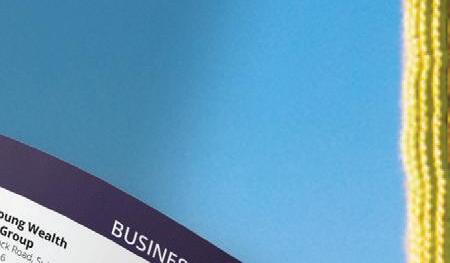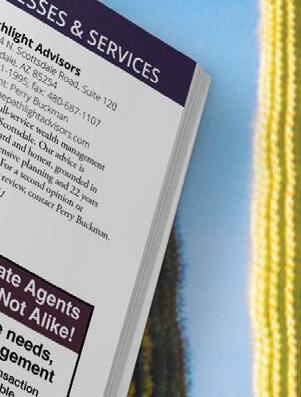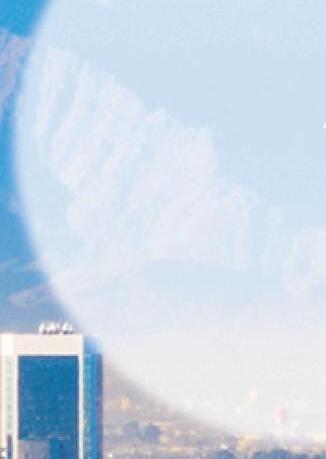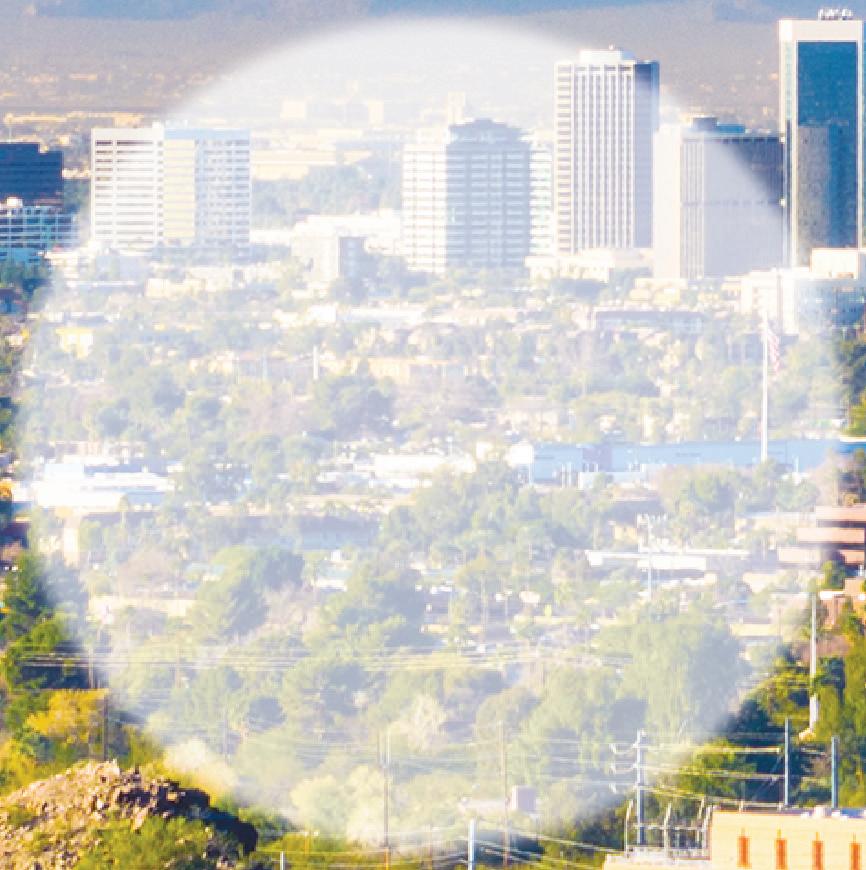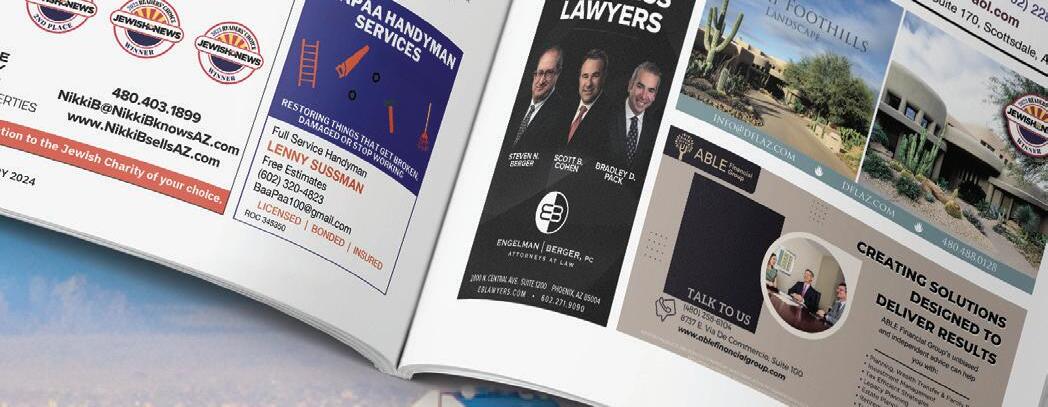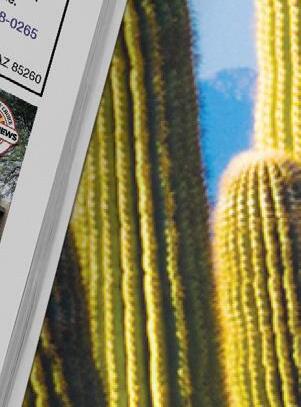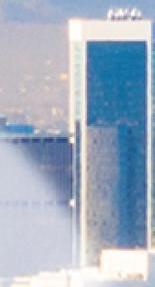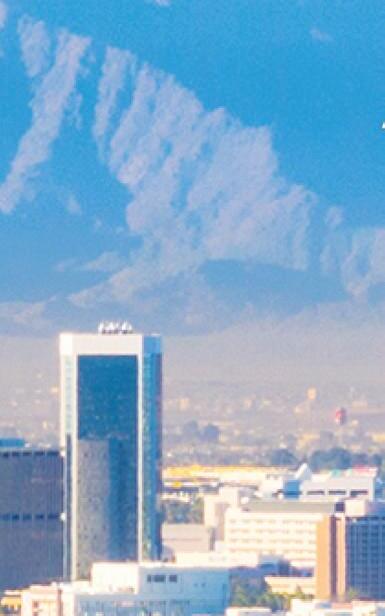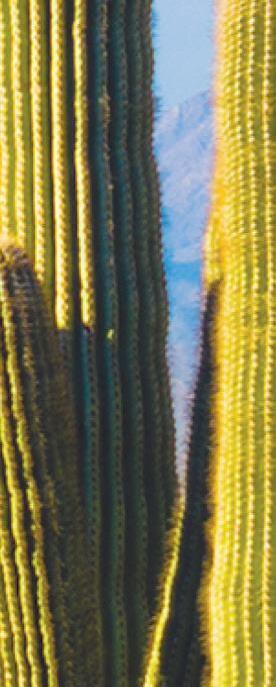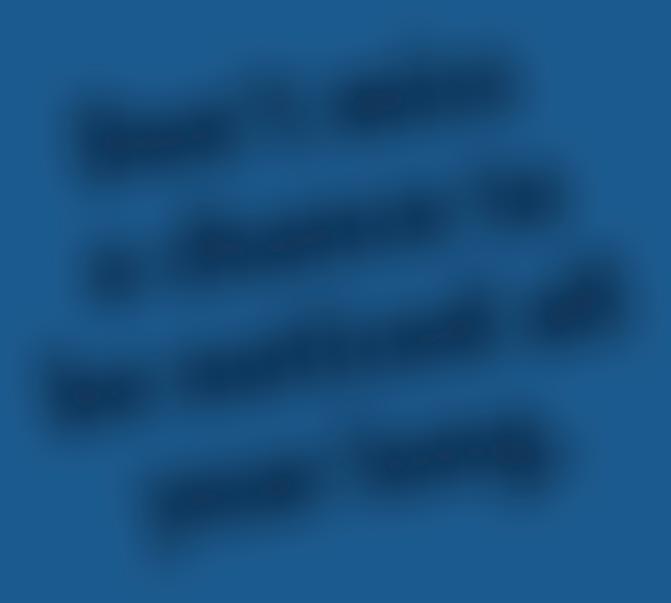
Local professional Matthew Isiogu received Phoenix Business Journal’s 40 Under 40 Award
SENIOR LIFESTYLE
Longtime family business says goodbye, a deep dive on Prop. 137 and Stephen Schwartz to perform at Phoenix Symphony Gala



Local professional Matthew Isiogu received Phoenix Business Journal’s 40 Under 40 Award
Longtime family business says goodbye, a deep dive on Prop. 137 and Stephen Schwartz to perform at Phoenix Symphony Gala

SHANNON LEVITT | STAFF WRITER
In a bid to promote civic engagement, Beth El Phoenix honored poll workers during Shabbat and hosted two of the state’s highest officials to discuss democracy. Arizona Supreme Court Justice Clint Bolick and Maricopa County Recorder Stephen Richer spoke to a crowd of Beth El congregants about the perilous state of democracy and what to do about it after Kiddush on Saturday, Aug. 17.
Beth El Rabbi Nitzan Stein-Kokin thanked poll workers for their contribution to society during the Shabbat service, and asked others to consider volunteering at the polls for the November election.
The Phoenix rabbi has spent considerable time in the last few months thinking about partisan political divides and the way they’ve deepened in recent years, especially since the COVID-19 pandemic drove discourse online and social media algorithms encouraged people to see only those opinions they already shared rather than reflect on, or be challenged by, differing perspectives.
“Our information culture does not expose us to different opinions, and now people can’t even talk about politics in a polite way. I’ve seen it in our families, and our communities, and it’s very concerning to me,” SteinKokin told Jewish News.
“I grew up as a strong believer in democratic civil discourse. To get things done, to support and build community, you need to work together, across different political alliances, and we’re losing that ability more and more,” she said.
Stein-Kokin is interested in the work of A More Perfect Union: The Jewish Partnership for Democracy, a nonpartisan organization focused on mobilizing the American Jewish community to protect and
DEMOCRACY, PAGE 2
More than 100 people gathered on a late August morning to celebrate the opening of Phoenix Hebrew Academy’s (PHA) new playground and pay homage to its namesake, Sonya (Sonzee) Ahava Zaila. The sun was bright and the morning’s temperature hovered in the 90s, with the lightest of breezes keeping the outdoor event bearable. None of it was lost on Randi Zaila, Sonzee’s mother.
“Today was a fitting temperature for Sonzee. She loved it hot and hated the cold,” Zaila told Jewish News. “She really loved the wind. Every time there’s wind, I think, ‘That’s Sonzee.’”

Sonzee was born with CDKL5 deficiency disorder, a rare developmental epileptic encephalopathy caused by mutations in the CDKL5 gene. Sadly, in the second month of 2020, at the age of 4, she passed away. Almost immediately after her death, the Zailas decided to honor their daughter by building a “desperately needed” new playground at PHA, their children’s school. However, the COVID-19 pandemic, which hit full force in March, effectively shelved the project for a few years.
On Sunday, Aug. 25, PHA Head of School Rabbi Baruch Harris was finally able to welcome PHA’s families, friends and faculty to experience and enjoy what he called an “expansive playground designed with students’ best interest in mind.” It includes a large, shaded structure with 32 active play elements SEE PLAYGROUND, PAGE 3
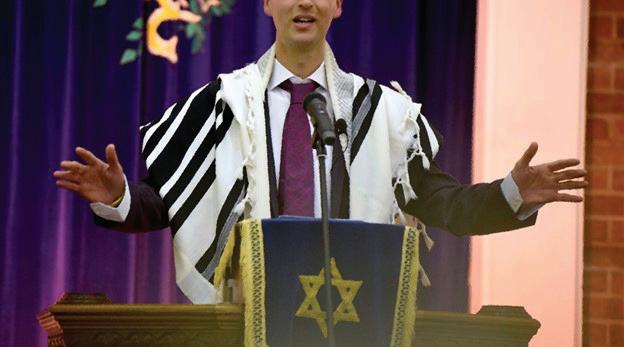
For rabbis writing High Holiday sermons during the Israel-Hamas war, procrastination pays off. See page 19.
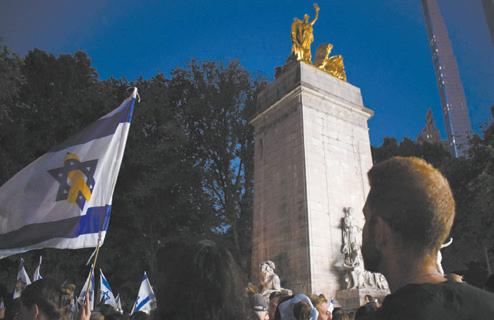
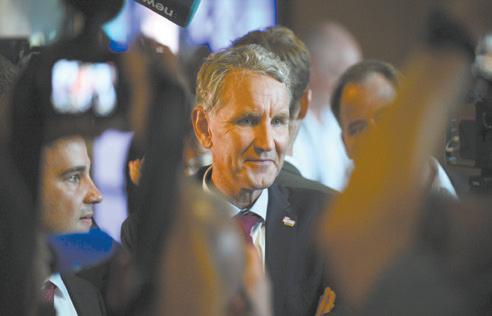
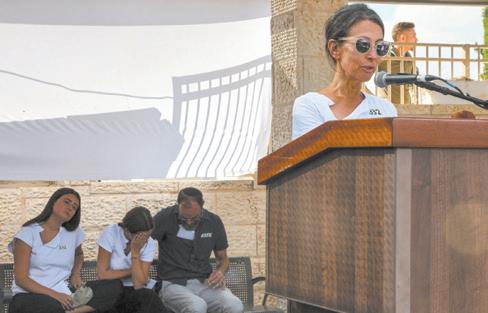
strengthen American democracy. She attended the group’s seminar designed to help clergy speak about democracy, civic engagement and elections, and applied for, and received, a grant to host community engagement events.
Beth El congregants Leslie Cooper and Josh Katz volunteered to set up the first event on Saturday. Initially, Cooper wasn’t sure what to expect, but after seeing the animated back-and-forth between Bolick, Richer and the audience, she knew it had been a complete success and looked forward to doing more.
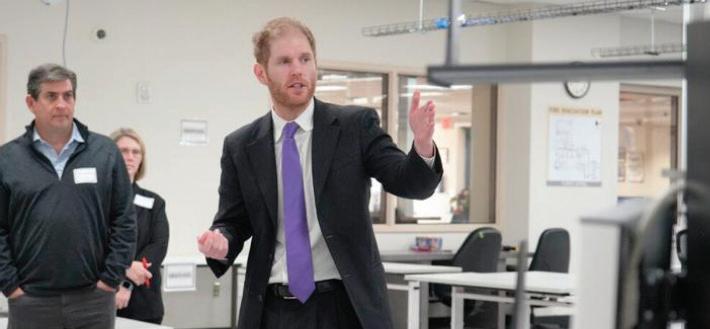
daughter with Down syndrome on KJZZ, National Public Radio’s Phoenix affiliate station.
Meyers was so captivated by the essays that he reached out to Silverman, and the two became friends.
about her Judaism with her fellow council members and speaking out for her rights
She already has some practice at
about her Judaism with her fellow council members and speaking out for her rights
“One time, I was in class and someone called me the R-word and I told him not to. The teacher was in the hallway and another student repeated the word,” she said. Rather than letting the situation go, she told her theater teacher, who was able
She already has some practice at
“One time, I was in class and someone called me the R-word and I told him not to. The teacher was in the hallway and another student repeated the word,” she said. Rather than letting the situation go, she told her theater teacher, who was able
“If someone has a disability, saying the R-word is like saying the F-word,”
“If someone has a disability, saying the R-word is like saying the F-word,” Stern said.

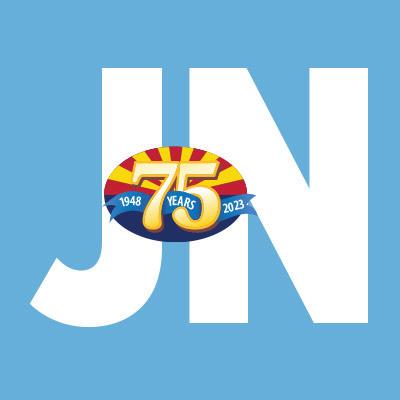
By the following Monday, both Cooper and Stein-Kokin had several congregants tell them the discussion had inspired them and that they were planning to sign up as poll workers.
January 6
August 25
increased polarization is “a big culprit,” but said that the “lack of respect for democratic norms and the rule of law” is his greatest concern. He isn’t sure “how we reset that” but said that “it starts with our leaders across the political spectrum.”
Meyers was so captivated by the essays that he reached out to Silverman, and the two became friends.
That’s how Stern first learned of the open council seat, but there’s no doubt she earned her position, Meyers said.
kids, your grandkids, your neighbors, to participate in it, you’ll find greater common ground,” Bolick said.
That’s how Stern first learned of the open council seat, but there’s no doubt she earned her position, Meyers said.
While performing in the musical “Hairspray,” she had another occasion to tangle with the offensive word, which appears in the script.
While performing in the musical “Hairspray,” she had another occasion to tangle with the offensive word, which appears in the script.
January 20
The threat to democracy was the main theme of Saturday’s conversation.
September 1
January 6
February 3
January 20
February 17
To become a council member, Stern had to apply and demonstrate that she had something valuable to contribute, he said.
“We took it (democracy) for granted, we didn’t teach about it, we didn’t talk about it,” Katz suggested and Bolick and Richer agreed that was a big part of the problem.
February 3
March 10
February 17
March 24
March 10
March 31
March 24
April 7
March 31
April 21
April 7
May 5
April 21
May 19
September 8
“That’s really bad and my friend said it on stage. I was not OK with that, so I went to the director and told her it was a bad word for people with disabilities, but she wouldn’t take it out,” Stern said.
1 September 8
September 15
October 6
“Too many people take living in a country that respects the rule of law for granted,” Bolick said. “We’re electing leaders who also do not see the value in reaching across the aisle.” Bolick is the only registered Independent to ever serve on Arizona’s highest court.
6
15
October 13** October 20
November 3
13**
20
November 10
Richer, a Republican, pointed out that the United States is not alone in this “democratic backsliding.” Many countries have become “autocratic curious.” The idea that people now living in democracies are looking to China, Hungary and Russia as possible government models is terrifying to him.
May 5
June 9
May 19
July 14
June 9
August 4
July 14
August 18*
August 4
3
November 17
10
December 1
17
December 15
“One of the reasons I’m so passionate about democracy in the United States is because we are still the beacon,” he said.
August 18* August 25
He agreed with Stein-Kokin that
1
15
Richer lost his primary bid to Arizona State Representative Justin Heap, an election skeptic. “One of the beautiful things about our electoral system is it’s always bipartisan,” Richer said in response to a question posed by Jewish News about how to protect the recorder’s office from drifting into election denialism.
To become a council member, Stern had to apply and demonstrate that she had something valuable to contribute, he said.
“She’s on the council because she deserves to be on the council,” he said.
Stern is creating a life and career as a member of her community, which makes her a great addition.
“She’s on the council because she deserves to be on the council,” he said. Stern is creating a life and career as a member of her community, which makes her a great addition.
In counting votes, Republicans watch over Democrats and vice versa. He added, “It would be hard to go very rogue if the county board of supervisors didn’t have faith in what you were doing.” If Heap is elected, he hopes that he will listen to the current employees and learn from their institutional knowledge.
That was music to Stein-Kokin’s ears. In her sermon that day, she used Jewish texts and stories to explain that throughout the last 2,500 years of Jewish history, scholars and community leaders have emphasized that Jews should support the societies in which they live.
Stern graduated from McClintock High School in Tempe last year and now attends Glendale Community College, with a focus on dance. She is a regular performer at Detour Company Theatre, a Scottsdale theatre company for adults with intellectual, developmental and physical disabilities.
Stern graduated from McClintock High School in Tempe last year and now attends Glendale Community College, with a focus on dance. She is a regular performer at Detour Company Theatre, a Scottsdale theatre company for adults with intellectual, developmental and physical disabilities.
“Politicians are often better than how they campaign; not everyone’s better, but almost everyone’s better than they campaign as,” he said.
“That’s really bad and my friend said it on stage. I was not OK with that, so I went to the director and told her it was a bad word for people with disabilities, but she wouldn’t take it out,” Stern said.
She told Beth El congregants a story about Avraham Yeshaya Karelitz, a Belarusian-born Orthodox rabbi known as the Chazon Ish who was a leader of Haredi Judaism in Israel.
She let her mother know about the conflict and they were able to convince the director of the need to remove the word from the script.
She let her mother know about the conflict and they were able to convince the director of the need to remove the word from the script.
“My friend Al was next to me when I told the director and he gave me the biggest hug ever and said that he loved me so much,” Stern said. Sadly, Al died in a car crash on Oct. 24, 2021.
The story goes that the Chazon Ish ran into a fellow Jew on Election Day and asked if he had voted yet. The man hadn’t and when the Chazon Ish asked him why, he said he didn’t have the money to pay the poll tax. Refusing to be deterred, the Chazon Ish told him to sell his tefillin and use the money to pay the poll tax.
In fact, when Stern attended her first council meeting in January, she couldn’t wait to tell people of her involvement with Detour and share information about its upcoming shows.
In fact, when Stern attended her first council meeting in January, she couldn’t wait to tell people of her involvement with Detour and share information about its upcoming shows.
Both Bolick and Richer emphasized that ordinary citizens can do a lot to tamp down divisions by speaking up and showing up.
Heart Can’t Even Believe It: A Story of Science, Love and Down Syndrome,” Silverman’s book about her daughter. When Gesher’s speakers’ bureau, Damon Brooks & Associates, was asked to find a speaker about Down syndrome for an event this spring, Hummell first asked Silverman to speak, thinking Stern might be too young.
6
20
27
11 October 18**
Heart Can’t Even Believe It: A Story of Science, Love and Down Syndrome,” Silverman’s book about her daughter. When Gesher’s speakers’ bureau, Damon Brooks & Associates, was asked to find a speaker about Down syndrome for an event this spring, Hummell first asked Silverman to speak, thinking Stern might be too young.
They decided instead that Stern should tell her own story; it’s a real bonus that she is not afraid of public speaking.
“That was hard; it’s very hard to get emotions out and I was very, very upset,” she said.
“My friend Al was next to me when I told the director and he gave me the biggest hug ever and said that he loved me so much,” Stern said. Sadly, Al died in a car crash on Oct. 24, 2021.
“That was hard; it’s very hard to get emotions out and I was very, very upset,” she said.
On the recent anniversary of his death, Stern made a cake and took it to the crash site.
The story is hardly unique in Jewish history.
“There’s no question that she is going to thrive,” Meyers said. “She’s very gregarious and passionate about the things that matter to her.”
“The more that you can engage personally in the process and encourage your
On the recent anniversary of his death, Stern made a cake and took it to the crash site.
“I don’t know how I did it without crying. I’m so proud of myself,” she said.
“Civic engagement is deeply rooted in Torah,” she said. JN
“There’s no question that she is going to thrive,” Meyers said. “She’s very gregarious and passionate about the things that matter to her.”
Stern looks forward to sharing insights
Stern looks forward to sharing insights
Amy Hummell, executive director of Gesher Disability Resources, agreed that Stern is a good fit for ADDPC because of her ability to self-advocate.
“I don’t know how I did it without crying. I’m so proud of myself,” she said.
To volunteer as an election poll worker, visit elections.maricopa.gov/work-with-us/ temporary-positions.
Hummell co-hosted a book event with Meyers a few years ago for “My
Amy Hummell, executive director of Gesher Disability Resources, agreed that Stern is a good fit for ADDPC because of her ability to self-advocate.
Hummell co-hosted a book event with Meyers a few years ago for “My
12701 N. Scottsdale Road, Suite 201, Scottsdale, AZ 85254 Phone: 602.870.9470 | Fax: 602.870.0426 | editor@jewishaz.com | advertising@jewishaz.com subscriptions@jewishaz.com | www.jewishaz.com
Suite 201, Scottsdale, AZ 85254 Phone: 602.870.9470 | editor@jewishaz.com | advertising@jewishaz.com subscriptions@jewishaz.com | www.jewishaz.com
PUBLISHER
PUBLISHER Jewish Community Foundation of Greater Phoenix
12701 N. Scottsdale Road, Suite 201, Scottsdale, AZ 85254 Phone: 602.870.9470 | Fax: 602.870.0426 | editor@jewishaz.com | advertising@jewishaz.com subscriptions@jewishaz.com | www.jewishaz.com
Jewish Community Foundation of Greater Phoenix
PUBLISHER
ADVERTISING SALES CONSULTANT Jodi Lipson | 602.639.5866 jlipson@jewishaz.com
SENIOR ACCOUNT EXECUTIVE Jodi Lipson | 602.639.5866 jlipson@jewishaz.com
GENERAL MANAGER Rich Solomon | 602.639.5861 rsolomon@jewishaz.com
Jewish Community Foundation of Greater Phoenix
GENERAL MANAGER
ASSOCIATE PUBLISHER Rich Solomon | 602.639.5861 rsolomon@jewishaz.com
MANAGING EDITOR Mala Blomquist | 602.639.5855 mblomquist@jewishaz.com
Rich Solomon | 602.639.5861 rsolomon@jewishaz.com
MANAGING EDITOR Mala Blomquist | 602.639.5855 mblomquist@jewishaz.com
MANAGING EDITOR Mala Blomquist | 602.639.5855 mblomquist@jewishaz.com
STAFF WRITER Shannon Levitt | 602.639.5854 slevitt@jewishaz.com
STAFF WRITER Shannon Levitt | 602.639.5854 slevitt@jewishaz.com
STAFF WRITER
Shannon Levitt | 602.639.5854 slevitt@jewishaz.com
ADVERTISING SALES CONSULTANT Jodi Lipson | 602.639.5866 jlipson@jewishaz.com
SUBSCRIPTIONS 602.870.9470 x 1 subscriptions@jewishaz.com
SUBSCRIPTIONS 602.870.9470 x 1 subscriptions@jewishaz.com
SUBSCRIPTIONS 602.870.9470 x 1 subscriptions@jewishaz.com
GRAPHIC DESIGNER Ricki Urban | 602.870.9470 X 2 advertising@jewishaz.com
GRAPHIC DESIGNER Ebony Brown | 410.902.2333 ads_phoenixjn@midatlanticmedia.com
GRAPHIC DESIGNER Ebony Brown | 410.902.2333 ads_phoenixjn@midatlanticmedia.com
They decided instead that Stern should tell her own story; it’s a real bonus that she is not afraid of public speaking.
“It’s not the same when someone tries to tell a person’s story for them,” Hummell said.
25 November 8 November 15
“It’s not the same when someone tries to tell a person’s story for them,” Hummell said.
November 22
December 6
December 20
Additionally, helping people with disabilities find jobs was one of the reasons for acquiring the bureau. Unemployment in the disability community is upwards of 75% and of that percentage, 75% are ready, willing and able to work — but haven’t been given the opportunity, Hummell said.
Additionally, helping people with disabilities find jobs was one of the reasons for acquiring the bureau. Unemployment in the disability community is upwards of 75% and of that percentage, 75% are ready, willing and able to work — but haven’t been given the opportunity, Hummell said.
“People have it in them to speak up but don’t know how, and often they’re not cheered on. Sophie has family support
“People have it in them to speak up but don’t know how, and often they’re not cheered on. Sophie has family support

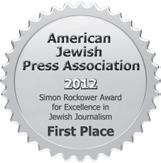

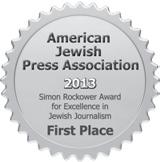


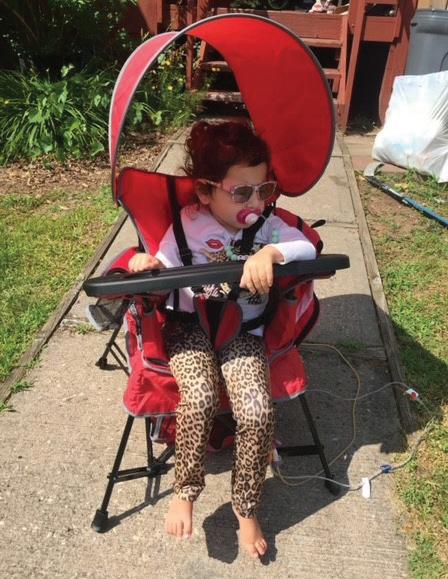
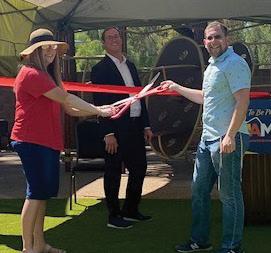

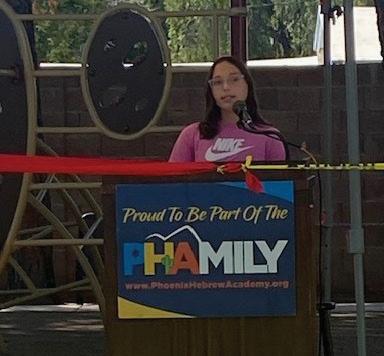
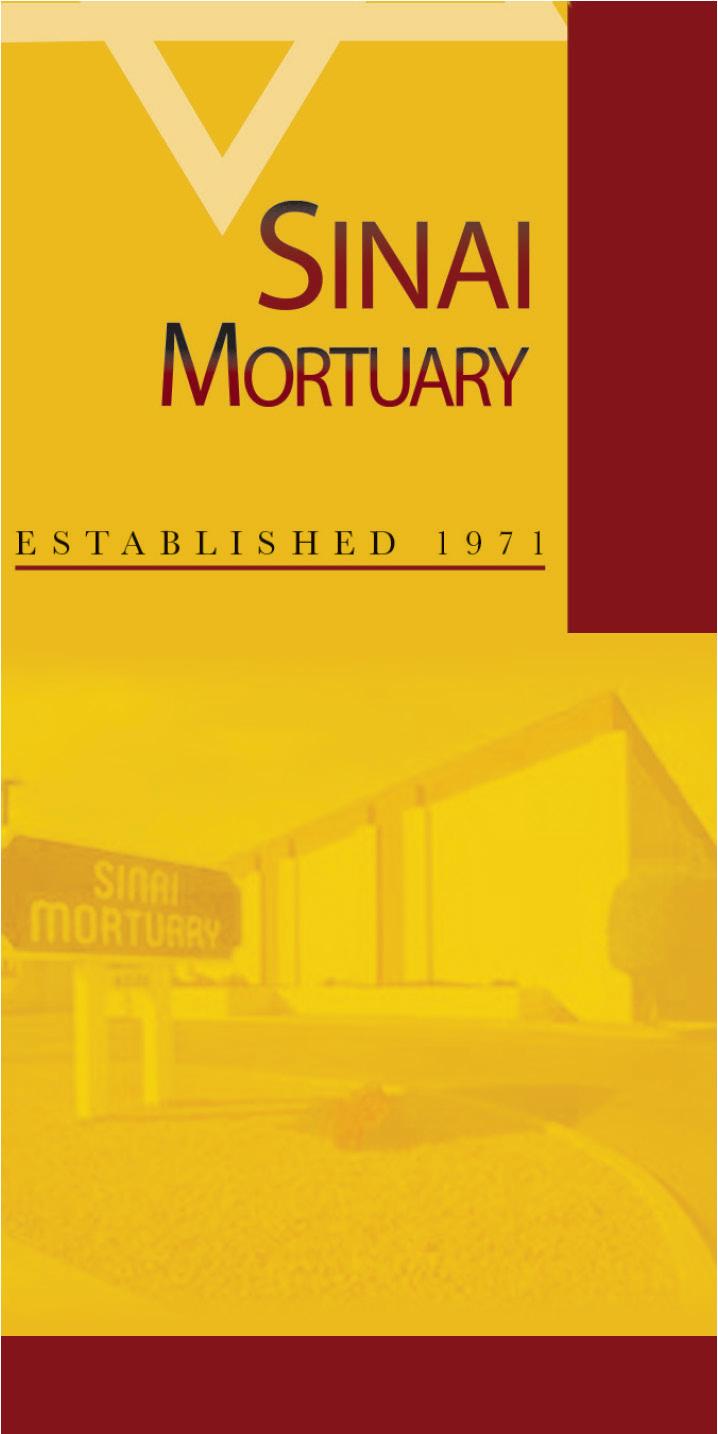
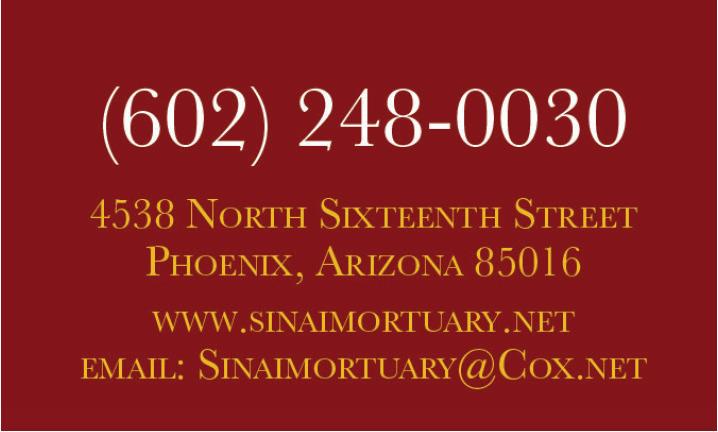
that can accommodate dozens of children at once. There are also swings, an aerial glider, a large turf-covered field, climbing equipment and an outdoor classroom.
The road to completing the Sonya Ahava Zaila Memorial Playground was not easy but thanks to the collaborative efforts of many, it is now a reality to be enjoyed, Harris explained. It started with Zaila’s vision and the family’s $100,000 gift. Then came $200,000 more from anonymous donors. Using the CauseMatch campaign model, PHA raised $150,000 more, and Harris thanked the 34 families involved, as well as those who donated individual funds for equipment and bricks in the playground entrance.
Even with the large amount of money raised, it took the extra effort of Tom McGann, the facilities director, and his team, to finish the project by demolishing the old playground and leading the development of the new one. Harris honored McGann, “whose vision, leadership and stewardship brought the Sonia Hava Zyla Memorial playground to life,” with a plaque on Sunday.
to be completed before the upcoming holiday. Another is a quiet learning area dedicated to Tamar Boyer, a former disabled PHA student who perished in a house fire in March 2023, along with her father and three brothers.
“The area is for kids to relax. Tamar was into butterflies and kindness. She was a good kid,” McGann said.
The playground was ready in time for the start of the school year on Wednesday, Aug. 21. PHA teacher Diana Musaev said the old playground didn’t have much to offer.
“Now the kids are excited to discover what’s here, and they’re playing with everything,” she told Jewish News.
That’s exactly what the Zaila family envisioned for their daughter’s memorial.
“It’s an extremely powerful experience, being able to memorialize our daughter in a way that seems most fitting,” said Sam Zaila, Sonzee’s father and PHA board chair.
While Sonzee’s disorder severely limited her movement, it did not dissuade her from a love of the outdoors. Her mother said she particularly loved being in water where her body could finally feel free. But even out of the water, she loved being outside with her siblings and watching people. She couldn’t play or communicate with them but her joy was still apparent.
who spoke before the official ribbon cutting on Sunday.
Laeya spoke passionately about what it was like to have a younger sister born with a medical disorder that kept her from doing everything that kids enjoy and, in fact, kept her from growing up at all.
“While there’s a lot of bad, I can still think of some good things,” she said, turning deftly to shine a light on the beautiful aspects of her sister, including how much she loved being outside or just looking out the window and watching her siblings leave for school.
“Sometimes, I would sit with her. We would watch the rainfall or the sunshine. We would watch the birds fly and stare at the mountains in the distance. Now, I get up every morning, look outside the window and just think to myself, ‘Wow! I’m really lucky I woke up today,’” she said.
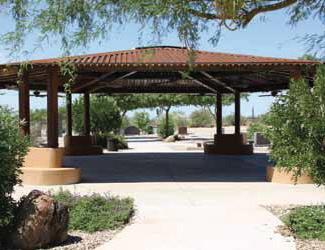
“It was a lot of work and we hit it hard over the summer,” McGann told Jewish News. “We just finished the painting on Friday before school started, and we’re still working on some things.”
One of those things is the new sukkah
Laeya believed that her sister, whose dreams were cut tragically short, would tell people to take chances and chase their dreams. She reminded them that the playground they came to see, a place that is accessible to everyone, including people with disabilities, began as her mother’s vision to honor her sister. She thanked the many people who helped the dream “of a beautiful playground” finally become a reality. JN
To learn more about Sonzee’s story, visit sonyasstory.com. PLAYGROUND
This aspect of her personality was noted by her sisters Laeya, 14, and Meena, 11,
SHANNON LEVITT | STAFF WRITER
Before former President Donald Trump stepped on stage at a campaign rally in Arizona, a Scottsdale rabbi appeared to give an invocation.
“Master of the universe, creator of all, we gather here today to seek your blessing and guidance as we stand together on the brink of a crucial election, where we are called to choose leaders who will uphold the values that make our nation the beacon of freedom and justice,” Congregation Beth Tefillah Rabbi Pinchas Allouche said to a crowd of thousands at Glendale’s Desert Diamond Arena on Friday, Aug. 23.
He then asked God to bless “all citizens casting this vote with wisdom, to make the right choice, a choice fueled by an unwavering commitment to truth, integrity and the common good.”
“We were pleasantly surprised and so proud when Rabbi Allouche came on stage to deliver the invocation,” Jettie Kootman told Jewish News. Kootman, a member of Beth Tefillah and co-founder of Jewish Women’s Conservative Forum, attended Trump’s rally with her friends
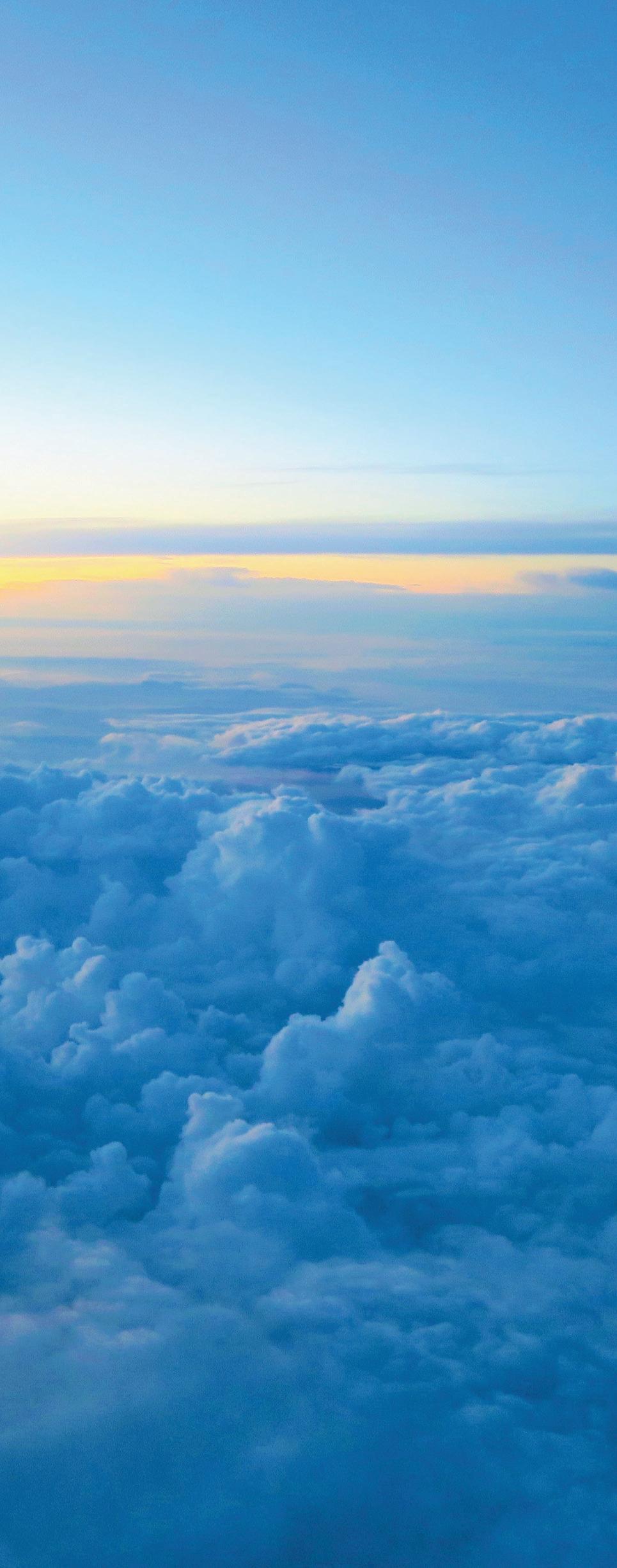
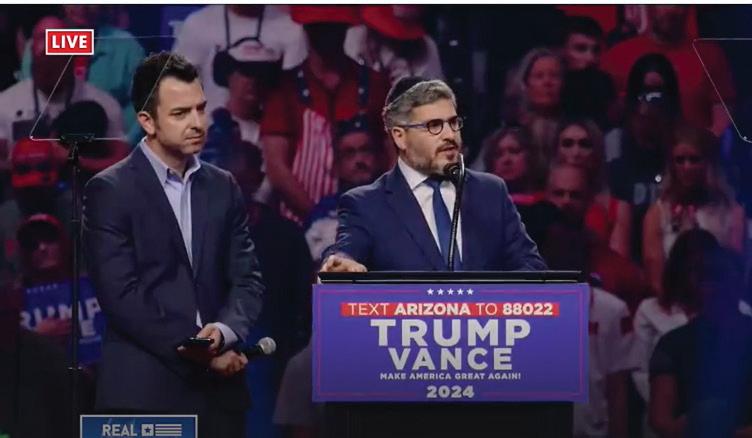
Sue Ritter and Laurie Schwartz and felt emotional and proud to hear his blessing.
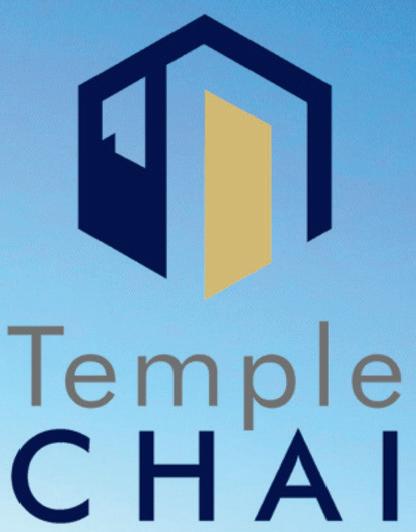




“Almighty God, bless all of the leaders of this great nation and, in particular, your humble servant President Donald Trump, a true champion of faith, family and freedom, with King David’s vision and unwavering courage and with King Solomon’s wisdom and understanding heart so that he can continue to lead this nation for many years to come with ears to hear, eyes to see, a heart to feel and hands to help and bring honor to your name and your blessing to humankind. Fortify him and us all so that we may turn crisis into opportunity, bad into good, despair into hope, darkness into light,” Allouche prayed.
“I understand that emotions are running high, but let me set the record straight: My invocation at the Trump rally was not an endorsement of him whatsoever. It was a prayer — something I will always offer, no matter the setting, especially now,” read Allouche’s text message to those upset with his rally appearance, which he shared with Jewish News.
In the message, he also said he has not yet decided whether Trump or Harris will get his vote, even leaving open the possibility that he will leave the top of his ballot blank “because both sides sicken me for different reasons.”
not the job of rabbis.”
He even released a public statement of clarification to the Jewish community, to explain the nature of the meeting with Lake and the policy issues discussed — mainly the maintenance of a good relationship with the State of Israel and “her alarming endorsement of an antisemitic Republican legislative candidate in Oklahoma.”
Israel was also top of mind for Allouche when he spoke to Trump’s supporters two weeks ago.
“God, we also pray for the immediate and safe release of all of the hostages held in Gaza. May they return to the embrace of their families in good physical and emotional health. Protect our brothers and sisters in the land of my ancestors, the land of Israel,” he prayed.
Allouche, whose son is in the Israel Defense Forces (IDF) fighting in Gaza, said he is “obsessed with doing everything in my power to have as many people as possible praying for him, the IDF and Israel.”
“When he asked G-d to protect Israel and bring the hostages home, he received thunderous applause and cheers,” Kootman said.
When asked to give the invocation by Turning Point USA CEO Charlie Kirk, whose organization hosted the rally, Allouche told him, “I’m bipartisan and I don’t pick one party over the other in public. I accepted the invitation because I’m happy to bring God into any assembly that wants to bring him.”










Allouche told Jewish News his words constituted “a prayer, not an endorsement,” of the Republican presidential nominee.
“I will give blessings to anyone who wants and asks for them,” he said.
“Rabbi Allouche should be the standing convocation prayer leader for any and every major event taking place in Arizona. He has consistently answered the call to bring Kiddush Hashem to both Republican and Democratic gatherings,” Adam Kwasman, a member of Beth Tefillah, told Jewish News in an email. Kwasman is a Scottsdale City Council candidate and co-leads the Arizona chapter of the Republican Jewish Coalition.
Allouche said many people, “happy there was a Jewish voice in such an assembly,” reached out with positive messages after seeing a video of his invocation on Rumble. However, he also heard criticism from those who believed he was endorsing Trump, or would be seen as endorsing him.
Allouche added that he wanted to offer a blessing for Vice President Kamala Harris’ Glendale rally on Aug. 9, and attempted to reach out to her staff through an unnamed intermediary, but it didn’t come to pass. Invocations have become de rigueur at Trump rallies, but they are not standard across the political spectrum, though Los Angeles Rabbi Sharon Brous offered an invocation at the Democratic National Convention.
Two years ago, Allouche was criticized for appearing to endorse Kari Lake, who was then a candidate for governor in Arizona. After a roundtable discussion that included Lake, Allouche and other Jewish community members took a picture with Lake that was used by her campaign in advertising to the Jewish community, and specifically in Jewish News.
At that time, Allouche told Jewish News that he was caught off guard when he saw the photo used in a press release because he didn’t want to be seen as endorsing any candidate.
“I, as a rabbi, have always been apolitical,” he said at the time. “I won’t speak about politics over the pulpit. It’s
Allouche met and became friends with Kirk in the last few months, as protests against the war in Gaza became more pronounced on college campuses.
Kirk, a controversial political figure, has been accused of making antisemitic statements in the past and his Arizonabased organization maintains a “professor watchlist” on its website, using it to “expose” left-leaning or gay college professors, including at Arizona State University.
Allouche countered that Kirk has “a big voice that fights against antisemitism on campus and in that, I partner with him.” He is also grateful for Kirk’s outspoken support for the State of Israel and for introducing him to various ASU faculty.
During his invocation last week, Allouche reminded those in the audience that “we can disagree without ever becoming disagreeable, that we can battle ideas without ever battling people.” JN
To watch the video of the rally and Rabbi Pinchas Allouche’s invocation, visit rumble.com/v5c2lt5trumpturning-point-maga-rally-in-glendale-az.
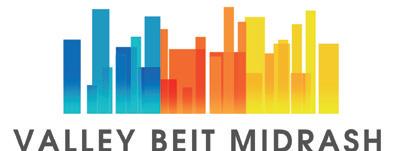

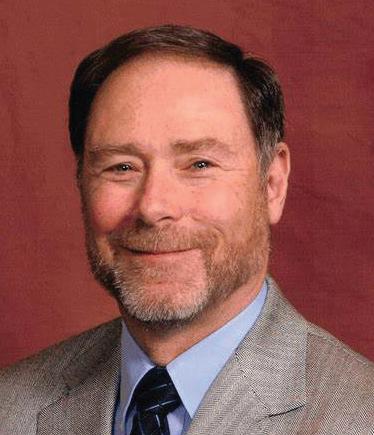
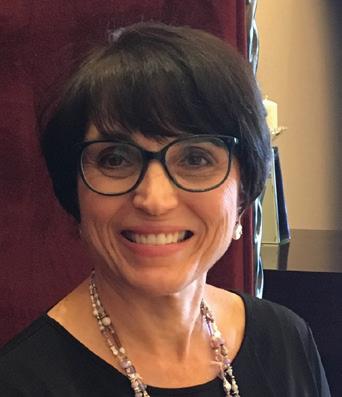


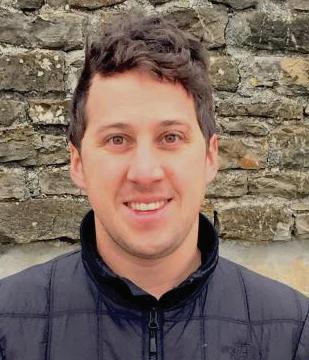
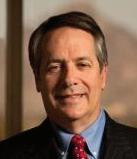



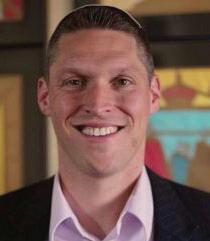
Valley Beit Midrash wishes everyone a shana tovah, a happy new year filled with joy and love. We invite you to join us in pursuit of improving lives in our communities through transformative learning and action. Here’s how you can plug into our work this year:
1. Learn with us at our upcoming classes. We have multiple pluralistic o erings each week and options for both virtual or in-person learning.
2. Serve with us and volunteer with Arizona Jews for Justice to help uplift the most vulnerable members of our community.
3. Reach out if you are looking for internship or fellowship opportunities for teens and young adults. We would be thrilled to tell you more about our leadership development programs.
4. Become a Legacy donor. By joining the Jewish Education Legacy Society of Valley Beit Midrash you will ensure VBM has the ability to provide engaging learning opportunities and save lives in our communities for many years to come.
We hope this year will be a time of renewal and growth and that we will experience many joyful moments together in the year ahead.

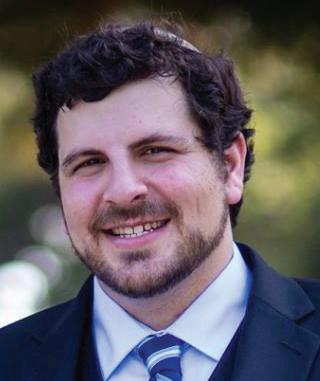



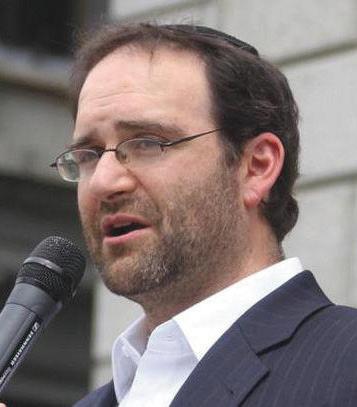
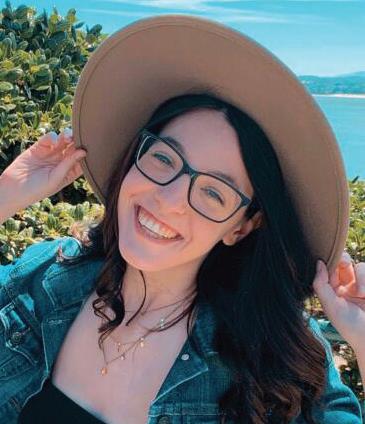
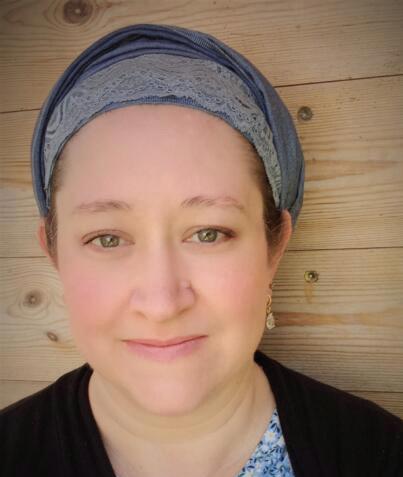
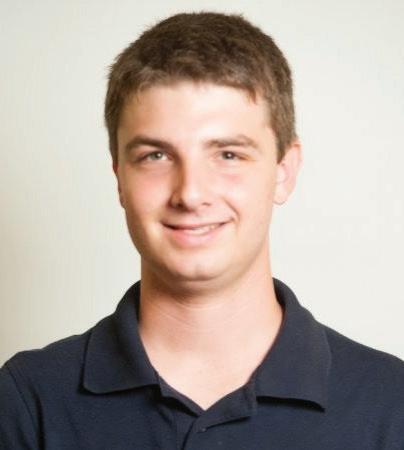
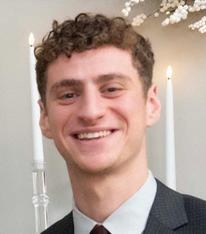
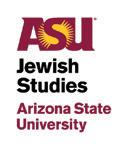


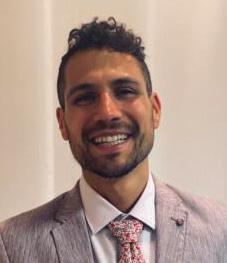


SHANNON LEVITT | STAFF WRITER
In a packed room at the Four Seasons Resort Scottsdale earlier this month, Matthew Isiogu was honored by the Phoenix Business Journal as a rising star in the local business world, someone who has distinguished himself in his industry and his community before reaching the age of 40.
Surrounded by family and colleagues, the 39-year-old Isiogu said the lunchtime event was exciting, humbling and emotional.
Each year, the 40 Under 40 Awards honor 40 young professionals, executives, innovators and entrepreneurs. The Phoenix Business Journal chooses and spotlights them, believing they represent the best of the Valley’s up-and-comers in business.
The awards program is judged by a panel of previous winners, which includes news team members, sponsors, community partners and program alumni. According to Phoenix Business Journal,

the judges work independently and anonymously to select the honorees from a pool of hundreds of applicants.
The most impactful moment of the ceremony for Isiogu, a member of Scottsdale’s Congregation Or Tzion, came when he and the other 39 honorees entered the room. Each took a turn approaching the podium, was handed the award and photographed for the Phoenix Business Journal.
He didn’t know what to expect and, understandably, was a little surprised to have to answer a few rapid-fire questions as he received his award.
When first asked about his favorite movie, he smiled because the answer was such a no-brainer: “Frozen.”
“My 3-year-old daughter will only allow us to watch ‘Frozen’ in the house,” he said.
Next, he was asked what professional accomplishment he’s proudest of. His answer to that was clear, too, but it came with an emotional backstory.
Isiogu explained that he was responsible for Arizona’s fiscal analysis during the U.S. Senate’s vote to repeal and replace the Affordable Care Act in 2018. He was the person who provided Senator John McCain’s office with the analysis that convinced the late Arizona senator to vote no with the now-iconic image of giving a thumbs down on the Senate floor.
“That vote saved health care for 20 million people,” Isiogu told Jewish News. It turned out that Jack McCain, the senator’s son, was also among the Journal’s 40 Under 40 Award winners this year.
“Being able to see him afterward, and also speak to Cindy McCain, was a really
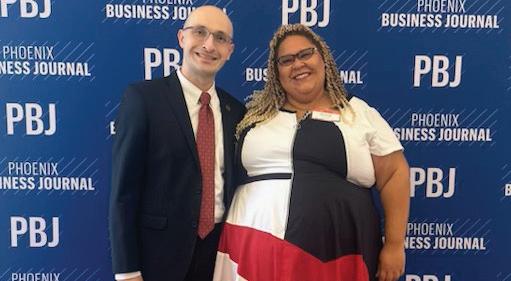
“I
HAD STUDIED PHILOSOPHY AND FOLKS WHO HAVE MADE A DIFFERENCE THROUGHOUT HISTORY, HOW GOVERNMENT OUGHT TO FUNCTION AND HOW PEOPLE OUGHT TO ACT, BUT TO BE IN THE ROOM WHEN THESE DECISIONS WERE MADE, I REALIZED I DON’T WANT TO READ ABOUT IT, I WANT TO BE ONE OF THE PEOPLE DOING IT,”
MATTHEW ISIOGU
humbling opportunity. To be recognized when one of my hero’s family was also there was really special,” he said.
While Isiogu, chief revenue officer of Contexture, the largest health information exchange and data utility in the western U.S., was being honored for his business acumen, there was a time when he saw a very different future for himself.
Initially, he thought he would become a professor of Latin. While in high school, he tutored students in Latin, including his now-wife, Chi Isiogu. He graduated college in the midst of the Great Recession in 2008, a dire time to be looking for a job. He considered returning to school for a graduate degree.
Instead, he lucked into a job as a budget analyst at the governor’s budget office in Michigan. A freshly minted college

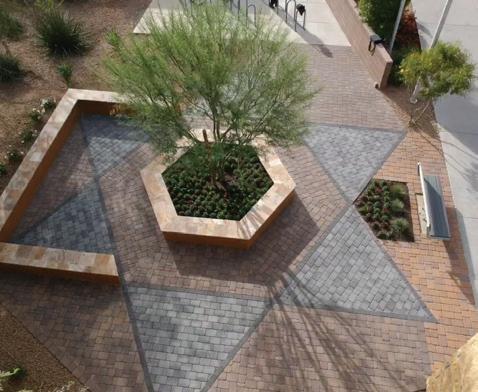
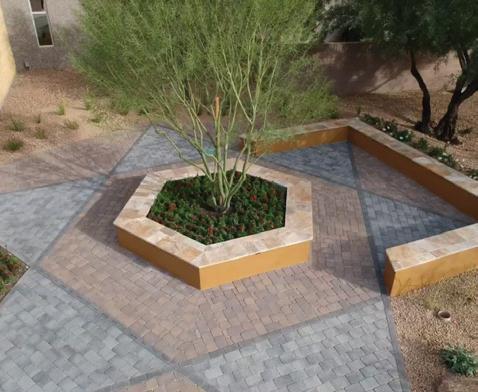
grad, and he was suddenly responsible for the state’s Medicaid budget. The auto industry was hit hard, and his state became one of the first casualties of the recession. He looked around and saw that he had both the opportunity to do a lot of good, and the responsibility of making hard decisions.
Capping populations, reducing rates to providers and cutting benefits were all on the table. Given that he had grown up in a family that didn’t always have health insurance, he understood the ramifications of what he was doing clearly. His father had struggled to stay consistently employed and his mother worked several part-time jobs with no benefits.
His government job made him reevaluate what he wanted to do in life.
“I had studied philosophy and folks who have made a difference throughout history, how government ought to function and how people ought to act, but to be in the room when these decisions were made, I realized I don’t want to read about it, I want to be one of the people doing it,” he said.
The health care business fire had been lit. He went on to work for a nonprofit health insurance company and when he moved to Arizona, he went back to the public sector, working for Arizona Health Care Cost Containment System (AHCCCS), the state’s Medicaid system.
“I love the public sector and Medicaid in particular,” he said.
In 2020, when the COVID pandemic first hit, he felt good about his work helping hospitals, “helping keep folks afloat.”
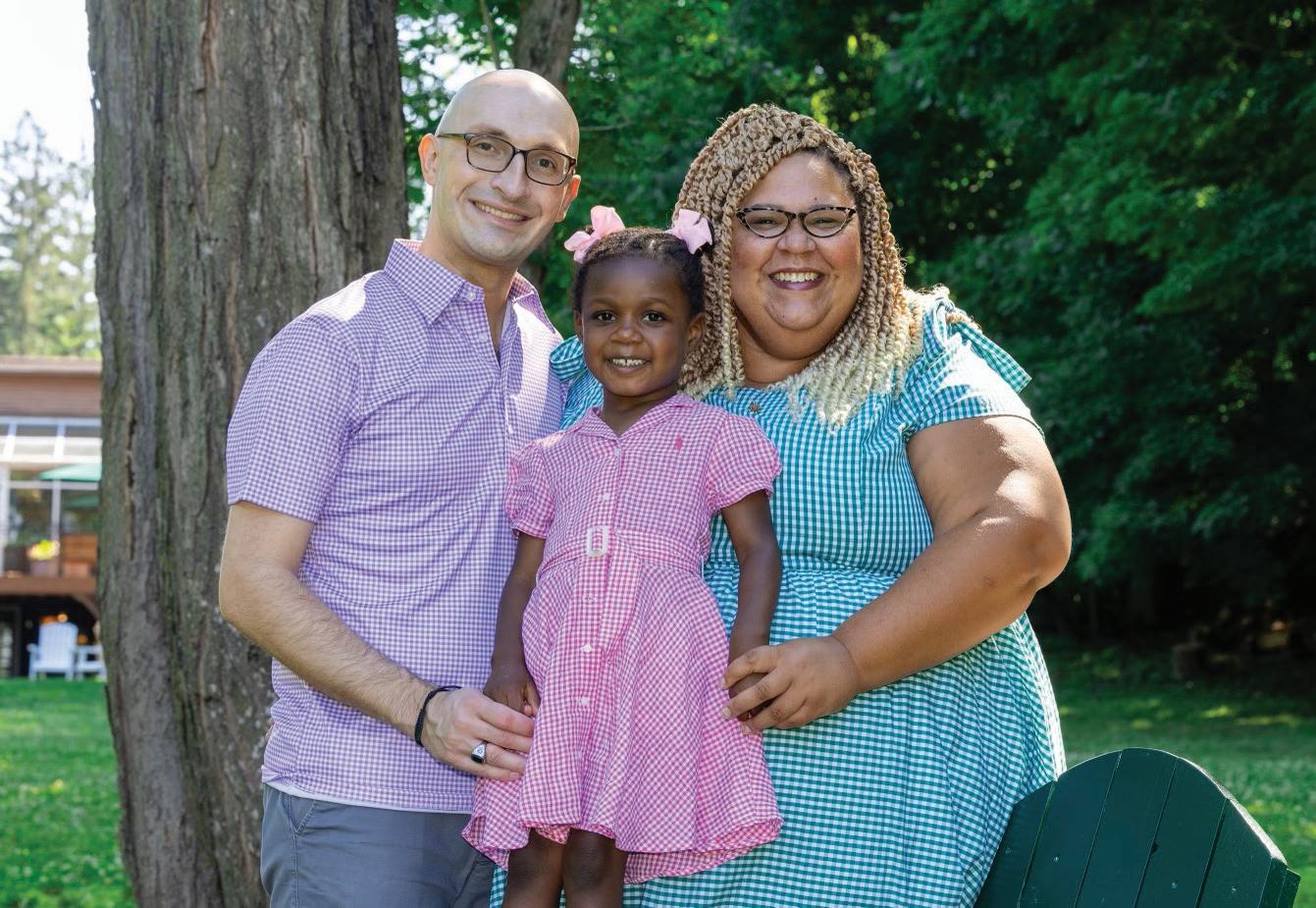
However, that was the year he and his wife became foster parents to their nowadopted daughter.
“I realized I don’t know what tomorrow holds, but I know I have this baby right here, right now,” he said.
He decided to move to Contexture, another nonprofit, where he helped implement creative financing solutions and expanded health information exchange so that health data could be exchanged more seamlessly, saving patients and doctors time.
“It was a really neat way that I was able to still keep doing the work that I so enjoy doing, but outside of government,” he said.
Transitioning from Latin tutor to health care administrator wasn’t the only unexpected change in his life. Isiogu was raised as a Roman Catholic, while his wife was an Episcopalian. The two married in 2011. A few years later, when they started to plan their family, both decided those religious traditions no longer spoke to them.
The night before Thanksgiving a few years ago, feeling a spiritual need, Isiogu found Temple Chai’s website and saw
the Phoenix synagogue was offering an introduction to Judaism class.
“I signed up in the middle of the night, got some sleep, and then on Thanksgiving, I said, ‘I know this sounds crazy, but I signed us up for this intro class.’ We started by wanting to learn more, and we’ve been hooked ever since,” he said.
That’s how they entered the Phoenix Jewish community. They converted to Judaism and their closest friends are the people who were also going through the conversion process at the same time.
“It’s really given us, not just the broader community, but those friendships that we lean on and to be honest, I don’t know that we could have done foster care or adoption if it wasn’t for that combination of faith and the community,” he said.
Having a new baby during the pandemic and being unable to come into physical contact with people was terribly lonely.
Taking part in virtual Shabbats and a Passover Seder with their new Jewish community was a real gift.
“I honestly feel like everything lined up in a way that God really prepared us to have our daughter,” he said. JN




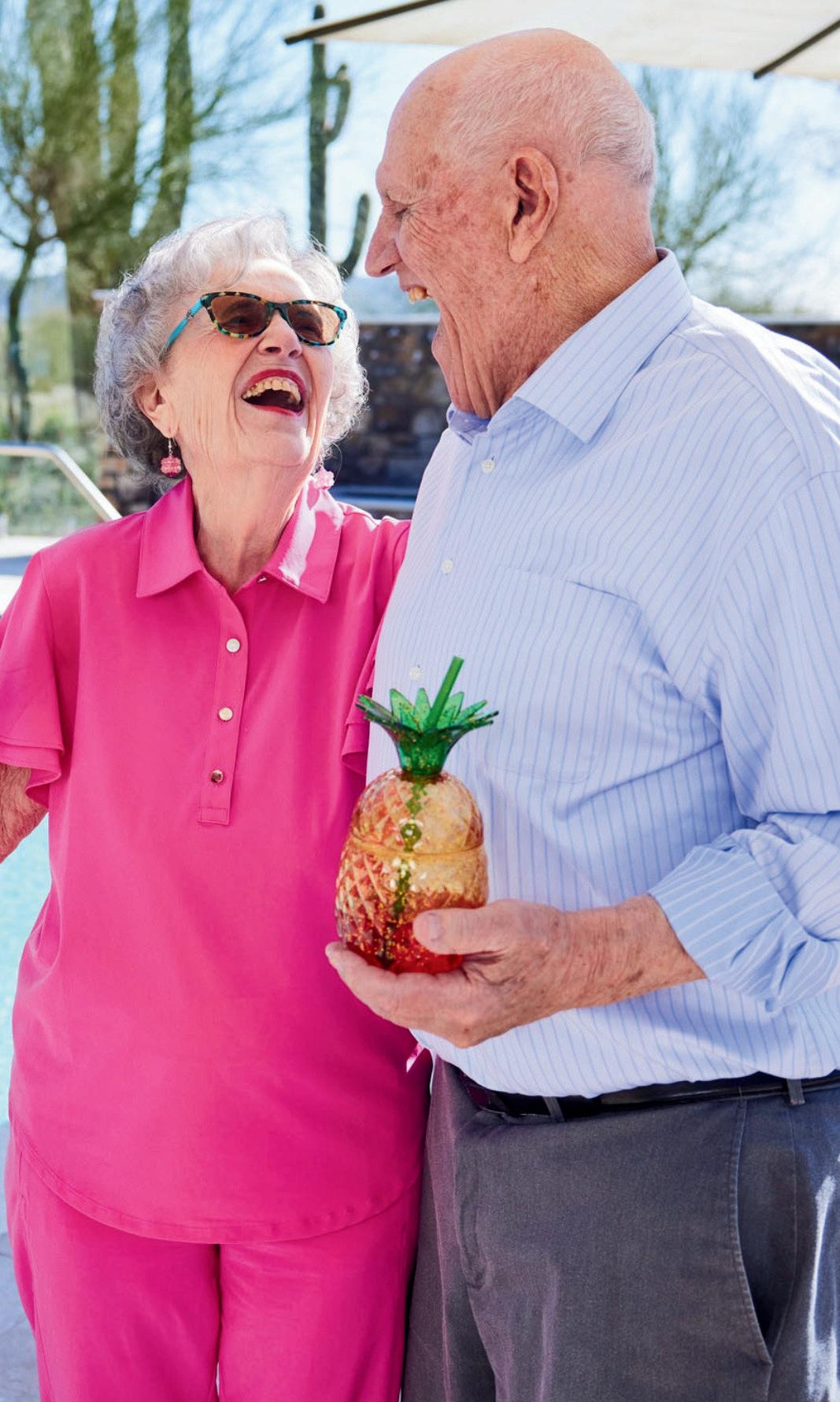
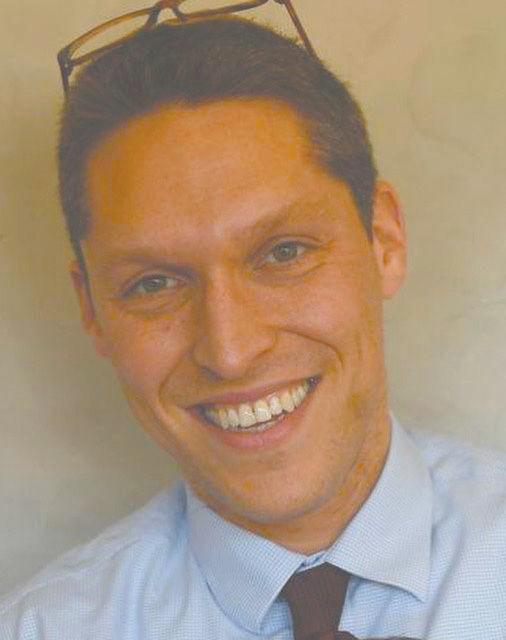
Parshah Shoftim, meaning “judges” is a Torah portion that may help us navigate how to vote on a proposition on the Arizona ballot this fall. We will focus on the first three verses to discuss the Torah commandment to establish systems of justice.
According to Jewish tradition, of the 613 commandments, seven are considered universal, applying to all humans, not just Jews. One of these is the obligation to establish courts of law. The other six, including prohibitions against murder, theft and cursing God, are negative commandments — actions so horrible, everyone is forbidden from performing them. The only positive commandment among these seven is the establishment of a system of justice. Creating a just legal system is clearly a fundamental human responsibility, applicable to everyone.
Deuteronomy 16:18 reads: “Judges and officials, appoint for yourselves in all your gates that Hashem your God gives you for
your tribes; they shall judge the people with righteous justice.”
The commandment here, spoken by Moshe to the entire people, is “you shall appoint for yourselves.” This indicates that the authority of the government and judiciary comes from the people — they have power over us, but it is the people who grant them that power.
We often view justice as the government’s responsibility. The federal and state governments establish and enforce laws, while we see our role as obeying the law and occasionally participating in government processes like voting or activism. However, these verses suggest relying solely on a centralized government is insufficient. Justice cannot be outsourced; it is a collective responsibility. Each of us must build structures within communities to maintain honesty and settle disputes, fostering a more dispersed and diverse sense of justice.
The ending of the verse, “they shall judge the people with righteous justice,” is a reminder that the righteousness of judges cannot be assumed. The Hebrew words used — mishpat (justice) and tzedek (righteousness) — indicate that the justice system must be not only just, but also righteous. This statement highlights the need for vigilance to ensure that systems of justice do not become sources of injustice.
The next verse, Deuteronomy 17:19, warns against perverting justice, showing favoritism, and taking bribes. While it seems directed at judges, the verse is ambiguous, suggesting that the responsibility extends to the entire community. We all play a role in the justice system, whether as disputants, mediators, judges, or those who appoint judges. This verse reminds us that the potential for corruption exists in any system, and it is up to us to prevent it.
Finally, the third verse of the portion includes one of the most well-known phrases in the Torah: “Tzedek tzedek tirdof — Justice, justice (or righteousness, righteousness) you shall pursue — in order that you may live and inherit the land that Hashem your God gives you.” This phrase has become a rallying cry for Jewish social justice work. It emphasizes that justice is not a static ideal but a dynamic one. We must constantly pursue and engage with it, making it an ongoing responsibility for all.
Parshah Shoftim is particularly relevant when considering Proposition 137, which will be on the ballot this coming fall. This proposed change to the state’s constitution would eliminate term limits for judges and remove the requirement for retention elections.
Term limits and retention elections are crucial as they ensure accountability within the judiciary. They provide a check
on judicial power, making it possible for citizens to periodically reassess whether those who interpret and enforce the laws are doing so with righteousness and justice, as urged by our tradition. Without these mechanisms, there is potential for judges to wield unchecked power, diminishing the transparency and fairness essential to a just legal system.
This could lead to a judiciary that is less responsive to the needs of the community and more susceptible to corruption or favoritism — concerns directly addressed by the Torah’s warnings against perverting justice or showing favoritism.
The Torah emphasizes the significance of a justice system that is both righteous and accountable to the people it serves. We must reflect on whether eliminating term limits and retention elections aligns with this vision of justice or whether it risks undermining the very principles that ensure fairness and equity in our legal system. Our parshah this week is charging us to reflect on our role in protecting our democracy. JN
MEG KEENE | JTA
L
ate Saturday night, after Shabbat was over, my texts lit up with messages from other Jewish mothers. Like every night for the past 330 days, we were all holding each other up. My messages were from Australia, Israel and New Jersey, from Los Angeles and nearby in Berkeley. They said one thing, over and over:
Hersh. Hersh. Hersh.
As more news broke the names piled up: Eden, Carmel, Almog, Alex, Ori.
We were adrift in a sea of pain. We were checking our children’s sleeping faces, kissing them, reminding ourselves that right now they were here with us. But knowing that we’ll never be able to unsee that the world turned their back as Jews died.
The six hostages survived more than 300
days of hell, only to face the cold terror of evil and death alone.
Hersh Goldberg-Polin was a 23-year-old American-Israeli, and became one of the faces of the movement to bring the hostages home. He was young, vibrant, kind, full of life, hopeful for peace. But he also had a quintessentially Jewish mother — one who did the impossible, the unimaginable.
Rachel Goldberg-Polin got up every morning, not knowing if her son was alive or dead, and fought. She recited the priestly benediction for her son after she woke. She met with world leaders. She asked all of us to speak up, to care, to not give in to hate, to fight for love.
For 330 days, we witnessed Rachel Goldberg-Polin show the world the love
Federation of Greater Phoenix, Cleveland Jewish Publication Company or
should be a maximum of 200 words. They may be edited for
between a Jewish mother and son. We saw her break down at the Democratic National Convention, but then stand up again and speak. We saw her scream her son’s name on the Gaza border. “Hersh,” she yelled, the pain clawing out of her chest, “It’s Mama.” As his time was ending on this earth, what we heard was a mother’s love crying out.
A matriarch. A force. A lioness. A Jewish mother.
Tonight I will push my children’s hair off their faces in bed, smother them with kisses and know that my job in this world is to keep them safe, know that while much of the world may have turned our back on us, our tribe, our people, are always with us.
I will pray for peace. For all of Israel. For the world. For Rachel and Jon. For the family members of all of the hostages, living and dead. And for every Jewish mother in the world, fighting to keep her head above the gray sea of despair.
And then I will go back to my own bed, and my texts will light up, with messages from other Jewish mothers. “How are you?” they will say. “How did you get through the day? How will you get through tomorrow?”
And the answer will be the same as it’s been every day since Oct. 7. Together. JN
The views and opinions expressed in this article are those of the author and do not necessarily reflect the views of JTA or its parent company, 70 Faces Media.
to editor@jewishaz.com

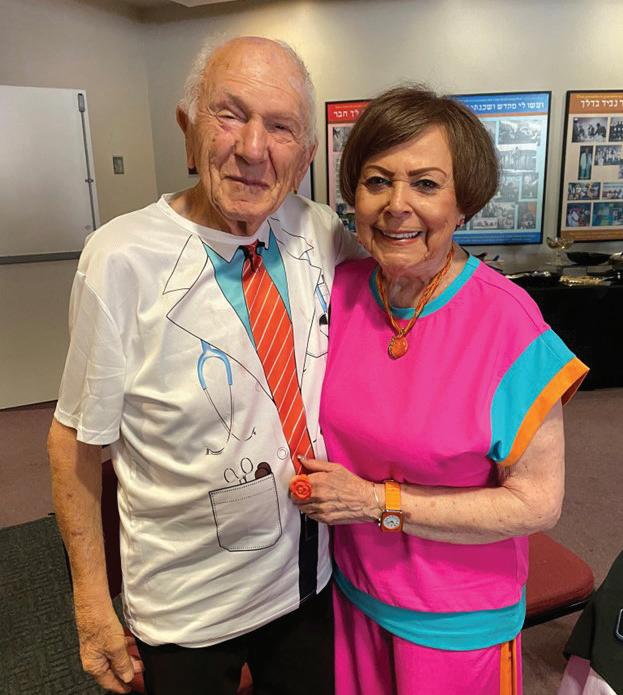
SHANNON LEVITT | STAFF WRITER
As young men, Jewish first cousins Jerry and Roland Weiss left Cleveland, Ohio, and moved to Phoenix. Jerry’s father was in the car wash business back in Ohio, and though he had worked there too, Jerry and his cousin wanted to build something of their own in their new home in the desert. That decision to change their lives happened nearly 65 years ago.
The Weiss cousins first tried out buying a car muffler shop. True, it was a business that revolved around cars, but it wasn’t long before they decided to return to their roots and purchased a car wash. Over the next decade, they expanded the business and welcomed one brother apiece, Howard (Jerry’s brother) and Jay (Roland’s brother), turning Weiss Guys Car Wash into what would become a fullfledged family affair.
“We were so lucky to be part of the car wash business in Phoenix,” Howard Weiss told Jewish News.
After more than six decades of success in the Valley, the Weiss Guys Car Wash has been sold. Monday, Aug. 5, was its official last day.
When the Weiss family business got underway, there simply weren’t that many car washes, and in the beginning, they were particularly lucky, Howard Weiss said. Their first location was close to an area with hotels and “when my brother started, the hotels would close from Memorial Day to Labor Day,” he said. And yet, they had loyal customers who continued to come throughout the summer.
The next location at Central Avenue and Camelback Road was even luckier, he said. “We met so many people and they treated us so well.”
In the early 1970s, Roland and Jay Weiss’ sister, Sharon Bulman, also came on board as office manager. Jerry’s daughter, Marla Weiss Mayer, worked at the car wash doing windows and other odd jobs as a kid, and eventually took on a full-time role in 1986. Like her family members, she spent decades in the business.
“It was a great family business to be in,” Mayer told Jewish News.
Mayer said people in the car wash business are very friendly and supportive in general. Like her father and uncle before her, she joined the Western Car Wash Association Board and became its president for nine years.
“It was a wonderful experience just being able to connect with other car
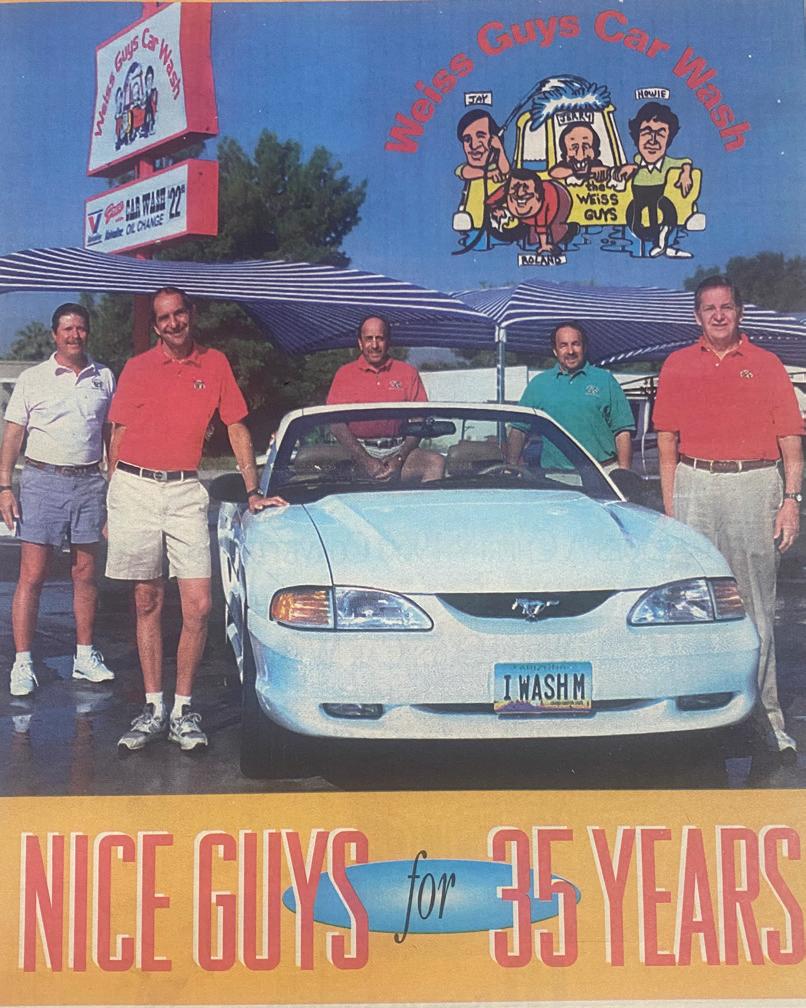

“USUALLY A BUSINESS PARTNERSHIP IS HARDER THAN A MARRIAGE, BUT NOT OURS. EVERYONE WAS ALWAYS THERE FOR EACH OTHER.”
washers and share your experiences and help others in the car wash industry,” she said.
It’s certainly an enterprise that has changed over the decades. When the Weiss brothers first started, they did it with full-service car washes. Over time, they sold those and purchased self-service car washes, eventually owning 24. They even added self-serve dog washes to the business.
The best part of the business was always doing it as a family.
“I was in business for over 50 years with my brother and two cousins and we really never had a big argument. We got along. Usually a business partnership is harder than a marriage, but not ours. Everyone was always there for each other,” Howard Weiss said.
Even when people were exhausted from working 75-80 hours a week, the family didn’t snipe at each other or worry about who was taking time off when.
“We knew we took off the right amount of time because we knew we’d be there
when needed,” he said.
During their 60-plus years in the Valley, the Weiss family members belonged to various synagogues and were active in Jewish organizations. Some Jewish community members were customers but mostly they were cheerleaders.
Mayer, a member of Beth El Phoenix, said other congregants loved to tell her, “Looks like it will be a great day for a car wash!”
Non-family members of the Weiss car wash business also ended up staying for decades. When the Weiss brothers first got going, Norris Brown, an employee who predated them, showed them some of the ropes. He recently recounted to Mayer that he had to teach them how to fold the towels correctly.
“He kind of came with the car wash and just stayed. He came to all of our weddings and bar and bat mitzvahs. He’s part of our family,” she said.
Norris stayed until the last day of operations. He’s in his 80s.
Howard and Jay Weiss are now retired.

Roland and Jerry Weiss passed away.
“My dad worked until the end,” his daughter said.
Now that it’s over, she wants to thank all of “our valued customers and our employees for their unwavering support of our family and our business over the last 63 years. We wouldn’t have been able to do it without them and we just want to give them a big thank you,” she said.
“The harder you work the luckier you get,” Howard Weiss said. While he admitted that aphorism doesn’t always hold true, in the case of his family it has.
“We’re the luckiest people in the world.” JN



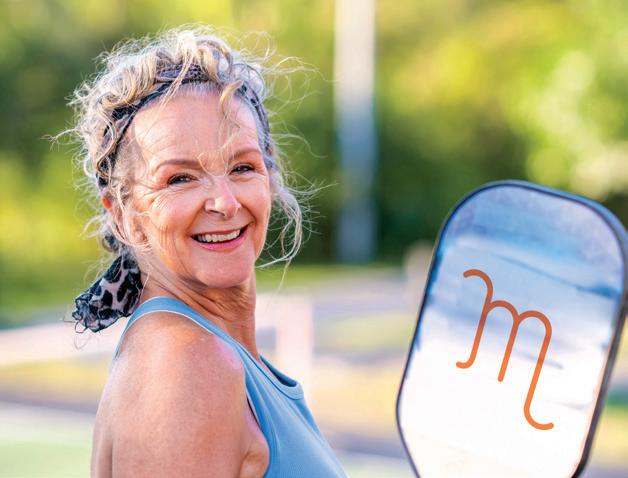



SHANNON LEVITT | STAFF WRITER
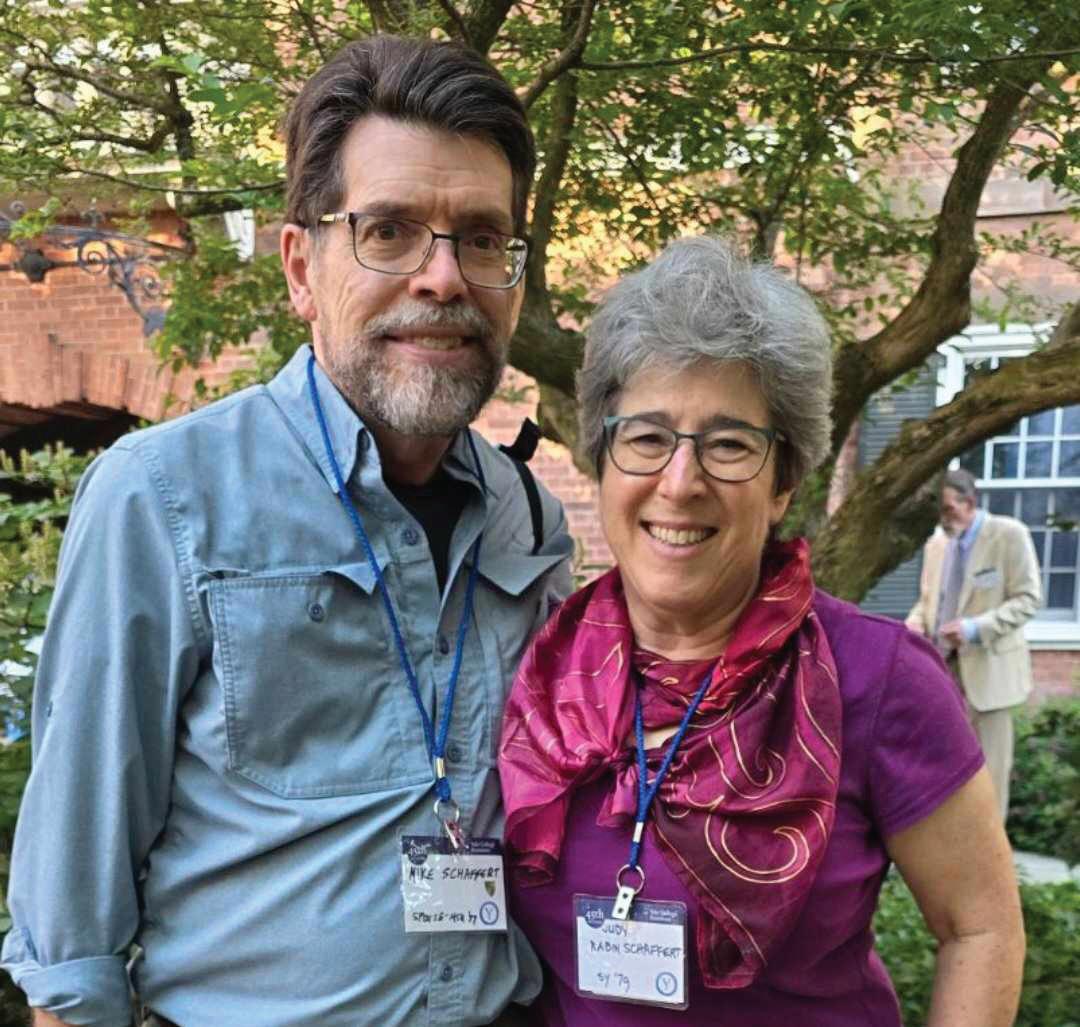



While Arizonan voters are mostly focused on who they will choose as their next president, their next senator and their next representative in the Nov. 5 election, the state’s ballot will be long and have many more boxes for them to check.
On Monday, Aug. 19, Temple Solel member and past-president Judy Schaffert drilled down into the details of Proposition 137, a somewhat controversial ballot measure, during “Learn About Judicial Integrity,” an Arizona Jews for Justice (AJJ) virtual event. Acknowledging that some voters might not make it to the end of the ballot, she explained what they could be unwittingly giving up if they don’t.
Schaffert, a former Arizona Assistant Attorney General and Arizona Supreme Court staff attorney, knows a little something about the Arizona judiciary and briefly overviewed its history, including how voters came to play a part in whether justices could keep their jobs using judicial retention, something that traces its roots back 50 years.
“In 1970, the voters wanted to rein in the judges a little bit and established a commission on judicial conduct to determine whether judges were adhering to ethical rules,” Schaffert explained. A
few years later, voters approved merit selection and retention of superior court judges in the larger counties, appellate judges and Supreme Court judges. Two decades later, “there was a further democratization of Arizona courts,” which required public input to review judicial performance.
“Arizona has a tradition of the voters having a pretty good voice in who gets to be on the bench,” she said.
That tradition might now be at risk if supporters of Proposition 137 get their way and amend the Arizona Constitution to weaken the judicial merit selection and retention system for Arizona Supreme Court justices, judges on the Arizona Court of Appeals and judges in Coconino, Maricopa, Pima and Pinal counties.
Presently, Arizona’s governor appoints judges and justices from lists of nominees selected by nonpartisan commissions. They serve set terms — four years for trial court judges and six years for appellate judges and Supreme Court justices — and must stand for retention elections to serve another term.
Proposition 137 is one of 11 measures referred by Republican legislators to November’s ballot and removes voters’ ability to vote on retaining judges
“ARIZONA HAS A TRADITION OF THE VOTERS HAVING A PRETTY GOOD VOICE IN WHO GETS TO BE ON THE BENCH."
JUDY SCHAFFERT
unless a judge is convicted of a felony, convicted of a crime involving fraud or dishonesty, files for personal bankruptcy, has a mortgage foreclosed on or does not meet judicial performance standards according to the Commission on Judicial Performance Review, which will evaluate each judge once every four years.
The Commission will also be expanded to include a State House appointee and a Senate appointee, and will be required to investigate should a state legislator make allegations that a judge engaged in a pattern of malfeasance while in office.
“Arizona’s judiciary and court system are the envy of the other states,” Schaffert told Jewish News. She testified to the judiciary’s innovative and independent nature and while nobody can say with confidence how things will change if the proposition passes, she did say that a “bad faith claim” by a legislator “could chill judges’ following the law in a way that might offend those legislators or their powerful constituents.”
Whether an investigation leads to discipline or not, a judge might second guess decisions. “We don’t want those who are charged with making tough decisions to be looking over their shoulders,” she said.
One other aspect of Proposition 137 is that if it is approved in November, all judicial retention elections on the 2024 ballot will be ignored, and no judges or justices will be removed from their posts, even if voters
rejected their retention this year.
Progress Arizona, a progressive advocacy group that unsuccessfully sued to keep the proposition off the ballot, charged that bit was to protect Supreme Court Justices Kathryn King and Clint Bolick, who are up for retention and voted this March to allow enforcement of an 1864 total abortion ban.
Republican House Speaker Ben Toma defended the proposition and said it would be unfair not to retain a judge because a voter is upset by their legal decision. He added that voters aren’t able to evaluate the dozens of local, appellate and Supreme Court judges.
On the other hand, Schaffert pointed to several tools voters have to educate themselves on judges, including azcourts.gov/jpr and the ballot guide mailed to voters, and said she favors keeping these issues in the public discourse.
“Some of the judges who are not retained had bad temperaments, were abusive to litigants or were rude. There was one guy who cussed like a sailor and he got booted. There are people who conducted themselves in a manner that was inappropriate, and it’s nice to be able to boot these people after their terms,” she said. Should this measure pass, voters will no longer have the power to choose who gets booted.
AJJ’s founder, Rabbi Dr. Shmuly Yanklowitz, said that while AJJ cannot make political endorsements, “we do
Maravilla Scottsdale, a retirement resort community nestled between the Champions Golf Course at TPC Scottsdale and the world-renowned Fairmont Scottsdale Princess, is expanding to offer even more high-end services and amenities.
SRG Senior Living announced the final phase of Maravilla Scottsdale is currently under construction with 47 new casitas and 115 new lodge homes, all available for reservation now. Each home is meticulously designed to cater to residents who seek elegance and comfort in a vibrant, active community.
Maravilla Scottsdale is more than just a place to live — it’s a lifestyle. The community features an impressive array of amenities that make every day feel like a getaway. Residents enjoy the grand clubhouse, a central hub of activity and relaxation, complete with an indoor pool and resort-style locker rooms. Maravilla Scottsdale offers exceptional dining at the elegant Ironwood Grill and the casual Café del Sol. A new restaurant called Fore with expansive views of the TPC golf course will debut in 2025. Residents of Maravilla Scottsdale indulge in pampering at the full-service Sage & Citrus Spa or stay active with a variety of fitness classes, putting greens and new pickleball courts coming soon. New casitas and lodge homes are perfect for those looking to embrace
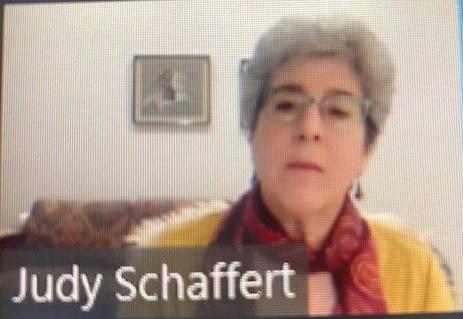
believe we have to be very informed and very active. The Jewish community disproportionately has been very active in civic engagement in America, partially because of our historic disenfranchisement for thousands of years, and partially because we believe we should convert our values into action.”
Schaffert spent her career as a civil servant and now serves as a Women’s Leadership Institute mentor. “As a friend and as a student of Judy’s, her brilliance is only matched by her kindness,” Yankowitz praised her.
“To me, the most important issue for voters is to be educated and active in their role as citizens, which is to vote and to do so with purpose,” she said. JN
For more information on Proposition 137 and all the other ballot measures, visit azleg.gov/ballot-measures-2024-analyses.
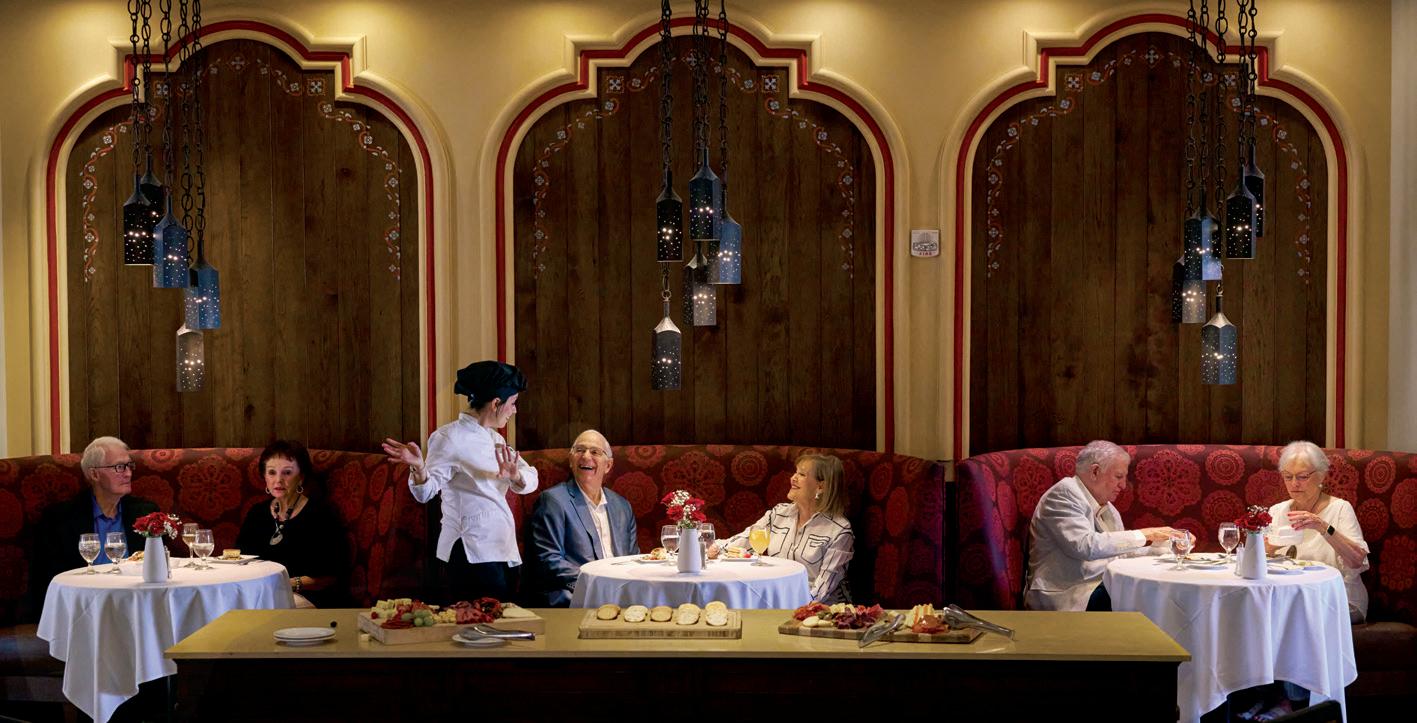
luxury living, some with stunning views of the TPC golf course. The casitas are set for completion in early 2025, and lodge homes, featuring expansive views and refined finishes, will follow.
Through the final expansion of Maravilla Scottsdale, the community looks forward to furthering its commitment to delivering truly exceptional, life enriching experiences. With its spectacular design and location, innovative amenities and dedication to resident well-being, Maravilla Scottsdale is the pinnacle of quality community living.
Step into the world of Maravilla Scottsdale — where luxury, comfort and community come together. Residents can secure their spot today and start living the Maravilla lifestyle. To learn more, visit MoreMaravillaScottsdale.com.
Maravilla Scottsdale, an award-winning luxury retirement resort, is expanding with new Casitas and Lodge residences, debuting in 2025. Reserve now. Visit MoreMaravillaScottsdale.com. 480-269-1952


MALA BLOMQUIST | MANAGING EDITOR
Growing up on Long Island in the 1950s, Stephen Schwartz took piano lessons like many of his peers. But unlike his friends, his parents knew Broadway composer George Kleinsinger, best known for his children’s compositions. When Schwartz was seven years old, his parents, who were avid theatergoers, took him to see Kleinsinger’s show. All at once, he knew what he wanted to be when he grew up.
In a career spanning more than five decades, the Jewish musical theater composer and lyricist has written popular musicals including “Godspell,” “Pippin” and “Wicked,” and has contributed lyrics to films including “Pocahontas,” “The Hunchback of Notre Dame,” “The Prince of Egypt” and “Enchanted.”
Schwartz will be making a guest appearance at two Phoenix Symphony Gala events, performing “Defying Gravity: The Music of Stephen Schwartz and Friends” on Oct. 12 and 13.
“The Phoenix Symphony’s Gala promises to be an unprecedented celebration,” said Peter Kjome, president and CEO of the Phoenix Symphony. “It’s going to be an extraordinary weekend full of festivities and interactions with Phoenix Symphony musicians.”
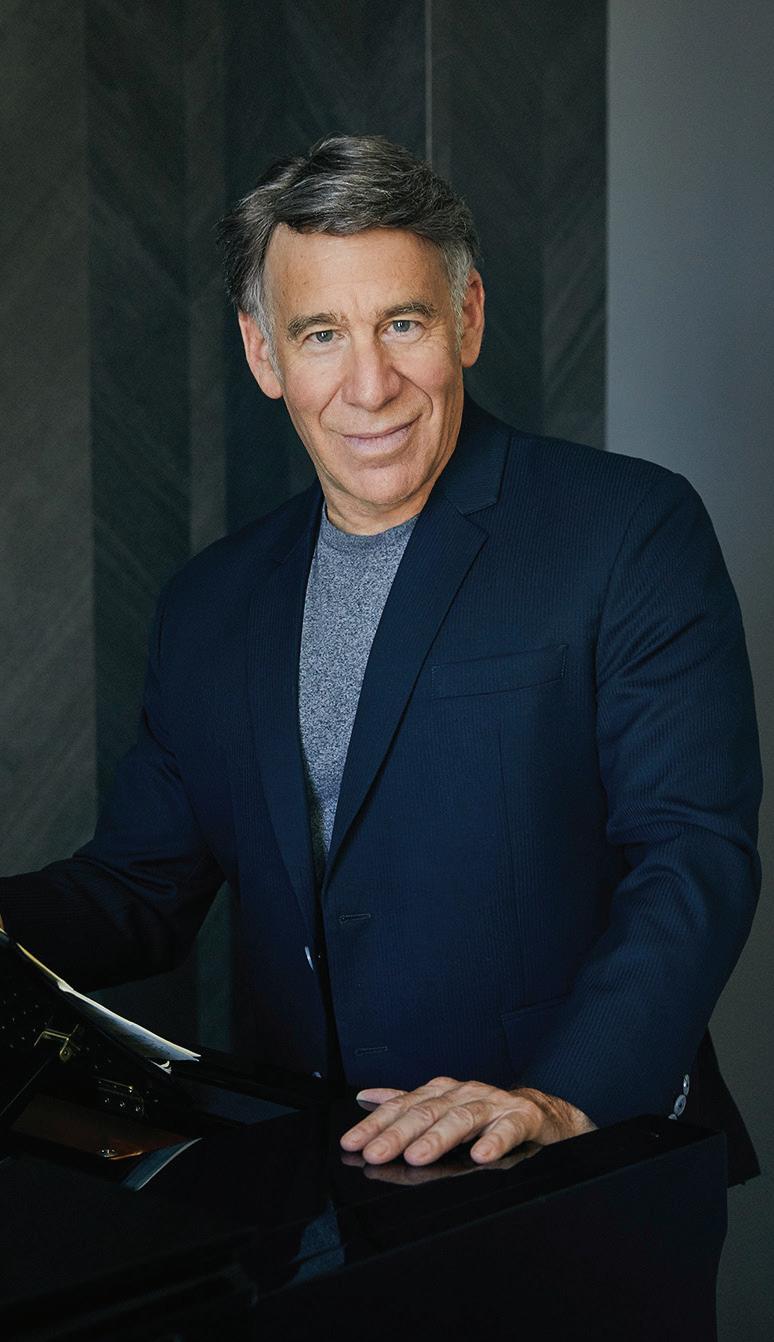
Symphony.”
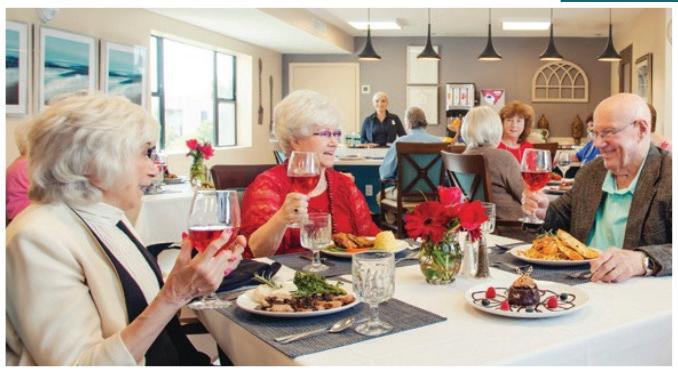
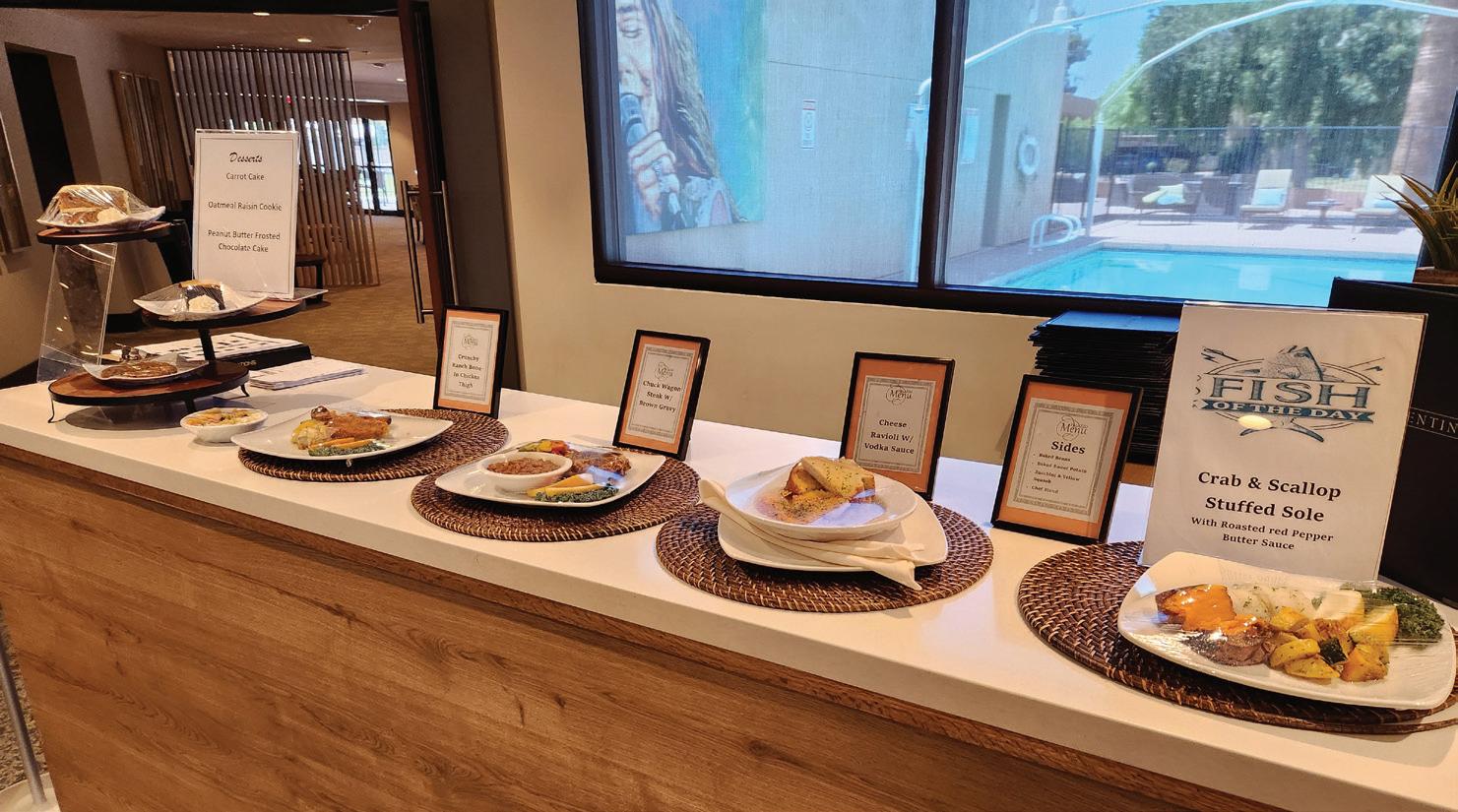
“A Wicked Weekend at The Symphony” will raise money for the Phoenix Symphony’s Mind Over Music outreach education program, a collaborative teaching initiative that pairs symphony musicians with teachers across the Valley to co-teach topics such as math, English, science, history and social studies. The first program of its kind in the country, Mind Over Music leverages the realworld experience of musicians to enrich classroom learning and support STEM education.
The gala returns after a five-year hiatus with co-chairs Rick McCartney, Phoenix Symphony board member and president & CEO at InMedia Company, and Dr. Korwyn Williams, M.D., Ph.D. of Phoenix Children’s Hospital.
“We are excited to be part of bringing back the Symphony Gala in this exciting manner,” said McCartney. “This is an opportunity for the community to come together to celebrate the power of live music and our outstanding Phoenix
Schwartz will be performing both well-known and new pieces. “The more familiar the song, the more we like to put a little bit of a spin on it,” he said. “Most of what we’re singing and presenting will be known to an audience who’s somewhat familiar with my work, but then there will be some things that they don’t know — so that will be interesting.”
One song familiar to theatergoers will get more exposure when part one of the movie “Wicked” opens nationwide on Nov. 22, starring Ariana Grande as Glinda and Cynthia Erivo as Elphaba. “Defying Gravity” ends the first act of the musical theater production and serves as a critical turning point in the show. It will also serve as the ending for the first movie. Schwartz explained that there was too much story to tell and there would have been a lot of cuts to make it one film of reasonable length.
“In trying to work it out as one movie, we kept stumbling over how we were going to get past ‘Defying Gravity,’” he said. “When you see the first movie and how it ends, you’ll see why it would be difficult to go on immediately thereafter.”
The use of “Defying Gravity” is a recurring theme with Schwartz; it’s even the title of his biography, “Defying Gravity: The Creative Career of Stephen Schwartz, from Godspell to Wicked.”
“It was just a phrase that stuck,” said Schwartz. “My collaborator on ‘Wicked,’ Winnie Holzman and I were in a conversation about the last song for the first act and arrived at that title. The song has resonated with a lot of people and, consequently, it seems to work as a title for things that have to do with me.”
Schwartz grew up in a “fairly secular” household, observing Jewish holidays, which he still does. Although he never became a bar mitzvah, he was confirmed and, at that time, became interested in ethics and religion and wrote a paper about the Jewish philosopher Moses Maimonides.
“I’ve done a lot of work that deals with religious and biblical themes, ‘The Prince of Egypt’ being the most obvious one in terms of Jewish heritage, but also ‘Children of Eden,’ which is essentially the first nine chapters of the book of Genesis,” he said. “I still find that kind of material compelling and interesting, in terms of the stories and moral questions involved. Maybe that goes back to Moses Maimonides.”
Since his start was in musical theater,

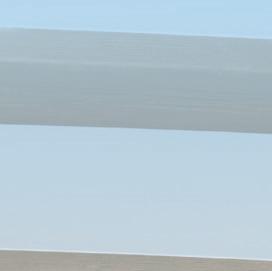













“ANY TIME I DRIVE ON
LOT, IT’S STILL A BIT OF A ‘PINCH ME’ MOMENT BECAUSE IT WAS, FROM MY CHILDHOOD, THE THING THAT SEEMED OUT OF REACH.”
STEPHEN SCHWARTZ
he still considers working on films “very glamorous.” He noted that everything is more “spread out” when working on films, compared to “everybody in the room together” when creating a theatrical production. He also enjoys seeing immediate audience reactions in live theater versus test screenings and previews with movies, which he admitted not to be privy to as a writer.
“Any time I drive on to a movie lot, it’s still a bit of a ‘pinch me’ moment because it was, from my childhood, the thing that seemed out of reach,” he said. “So, there is a great excitement for me in working in the movies. But theater is what I wanted to do since I was a kid, and the collaborative nature of working in theater remains really exhilarating to me.”
Schwartz is currently working on a new musical project bound for Broadway


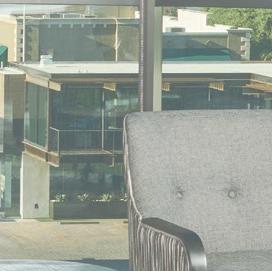










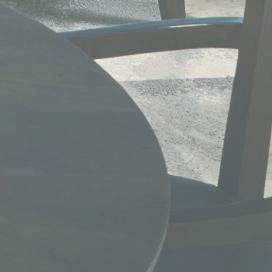



based on a 2012 documentary. The project, titled “The Queen of Versailles,” will star actress and singer Kristin Chenoweth in the title role.
There are two reasons why retirement is not in the future for the 76 year old.
“It’s still a lot of fun, number one and number two, they still let me do it, which is kind of amazing after all this time,” said Schwartz. “Writing a new musical from scratch is a multi-year proposition, so I’m not sure how many more of those I have in me, but I do have some other projects I’m talking about, both for stage and film or television. I don’t see retirement looming, at least not any time soon.” JN
For more information on Stephen Schwartz, visit stephenschwartz.com; for the Phoenix Symphony Gala, visit phoenixsymphony.org.

YOU CAN DISCOVER FIVE-STAR INDEPENDENT LIVING THAT ISN’T JUST AN IDEA, BUT A PROMISE. At Clarendale Arcadia, what you see is what you get: the beautiful scenery of Camelback Mountain, modern residences, attention to detail, community spaces dripping with sophistication, high-class amenities, and even higher-class people.

















The Center for Jewish Philanthropy of Greater Phoenix (CJP) is now accepting grant applications for programs and services intended to benefit the Greater Phoenix Jewish community.
While CJP will consider programs that positively impact the Jewish community, there’s s focus on several areas:
• Programs that build community cohesion by connecting Jewish people to one another and the larger Jewish community, as well as provide Jewish education and ritual experiences that increase meaning and engagement.
• Capacity building programs that
improve the overall performance and financial sustainability of local Jewish organizations to fulfill their missions and serve their constituents.
• Professional and volunteer leadership development for the continued success of the Greater Phoenix Jewish community.
• Programs that support youth, families or seniors in Jewish life, engage people of all abilities, ages and identities, and programs assisting vulnerable populations.
Applicants should be aware of changes to the process, Sheryl Quen, CJP vice president of community impact, pointed out.
For example, while there are three funding opportunities, organizations may only apply for one grant. They may apply either for general operating support (if eligible), a strategic initiative or a small grant. Additionally, organizations may receive only one CJP grant in a 12-month period. There is also a streamlined grant application process for those applying for grants up to $10,000, and a two-stage process for grants over $10,000 — a letter of intent must be approved before the organization is able to complete the full application. Small grants, for which the amount has been lowered to $3,000, will be reviewed quarterly.
A delegation from Phoenix will join thousands of American Zionists at the Jewish National Fund-USA Global Conference for Israel next fall.
The annual multi-day event will take place in Dallas from Nov. 14 to 17, 2024, and provides attendees with tools to be proactive rather than reactive regarding antisemitism and an opportunity to share first-hand accounts about the realities on the ground in Israel.
Attendees will hear insights from Zionist leaders, explore an interactive Israel expo, take part in one of the largest Shabbat dinners in the world, hear what’s bein done to support Jewish
students on college campuses and learn about initiatives that are already rebuilding the parts of Israel damaged by war.
“Our world changed on Oct. 7, but if anything, we have become more resolute and more united as a people as we work to build a stronger Israel,” said Ann Zinman, a member of Jewish National Fund-USA’s Desert States board of directors. “It is clear that personal connections, sharing stories and coming together are more important now than ever. If there was ever a time for supporters of Israel to gather, now is that time.”
Arizona State University (ASU) President Michael M. Crow received an honorary doctoral degree from Ben-Gurion University of the Negev (BGU) during its 54th annual board of governors meeting in May. This honor recognized Crow’s achievements over two decades of leadership at ASU, specifically his approach outlined in his book, “The Fifth Wave: The Evolution of American Higher Education.” The model integrates academia with community development, focusing on social, economic, cultural and health care improvements. Crow’s collaborative efforts with BGU over the past 15 years have advanced both institutions’ contributions to sustainability and health care, according to a BGU press release announcing the honorary degree.
“I am deeply honored to receive this honorary degree from Ben-Gurion University of the Negev,” Crow said in a statement.
“Our collaboration over the past 15 years on topics ranging from sustainability to health care have been of mutual benefit and it is my sincere hope that as I have learned through this engagement that I have also contributed to the university and its work.”
In his address at the board meeting, Crow emphasized the role of academic institutions in promoting democracy and the “Four Freedoms” as articulated by President Franklin D. Roosevelt: freedom of speech, of religion, from want and from fear. He also expressed optimism about the ongoing partnership between ASU and BGU to enhance these freedoms globally.
“It’s sometimes only through adversity that we realize our true strength and resilience,” added Marty Locke, community campaign chair, Jewish National Fund-USA Desert States board of directors and local recruitment chair for the Global Conference for Israel. “Everywhere you look, Jewish and pro-Israel communities are stepping up to celebrate everything they have achieved and how our homeland has and continues to help the world.”
General operating support applications are due Sept. 19; streamlined strategic initiative grant applications for requests up to $10,000 are due Oct. 1; and letters of intent for grant applications over $10,000 are due Oct. 1 JN
To learn more and apply, visit phoenixcjp.org/ what-we-do/cjp-funding and review the 2025 Community Impact Funding Guide prior to applying. For questions, contact Sheryl Quen at squen@ phoenixcjp.org.
Jewish News is published by the Jewish Community Foundation of Greater Phoenix, a component of the Center for Jewish Philanthropy of Greater Phoenix.

More than 2,500 philanthropists, high school students, college students and Israelis who manage and benefit from Jewish National Fund-USA’s philanthropic initiatives attended the organization’s 2023 Global Conference for Israel in Denver this past fall. The 2024 conference will once again welcome thousands of pro-Israel supporters and hundreds of students at the event’s high school and college summits. JN
Amid its transformation into Israel’s first “Fifth Wave” university, BGU is leading efforts to revitalize Israel’s South. Dr. Daniel A. Chamovitz, president of BGU, highlighted the uUniversity’s significant role in driving regional development and innovation.
“Today, we recognize Dr. Crow not only for his visionary leadership at ASU but also for his substantial influence on our strategies for advancing education and community development in the Negev,” said Chamovitz.
Doug Seserman, CEO of Americans for Ben-Gurion University (A4BGU), also spoke about Crow’s role in fostering robust partnerships and research initiatives between the two universities.
Arizona senator bill awards congressional gold medal to forgotten heroes of the Holocaust
Arizona Senator Kyrsten Sinema cosponsored bipartisan legislation posthumously awarding 60 World War II-era diplomats a Congressional Gold Medal for their roles in aiding countless Jewish people fleeing Nazi Germany during the Holocaust.
“I’ll continue standing with Arizona’s Jewish community in the fight against antisemitism –— and I’m honored to cosponsor bipartisan legislation awarding the forgotten heroes of the Holocaust with the Congressional Gold Medal for their
bravery and heroism,” Sinema told Jewish News in an email.
The bipartisan Sinema-backed bill would posthumously award the Congressional Gold Medal to 60 World War II-era diplomats from over 20 countries, including two from the United States, for their efforts to save lives during the Holocaust.
“We’re honoring the bravery and heroism of the men and women who risked their lives to help countless Jewish people flee Nazi Germany during the terrors
of the Holocaust. Awarding them the Congressional Gold Medal is a small token of our gratitude as we continue to stand with Jewish people across the globe in the fight against antisemitism,” said Sinema, in a press release.
The honorees took tremendous action to help Jewish people flee Nazi Germany –— issuing passports and travel visas, contrary to their government’s instruction, to aid families and individuals’ safe escape.
The medal will be displayed at the United
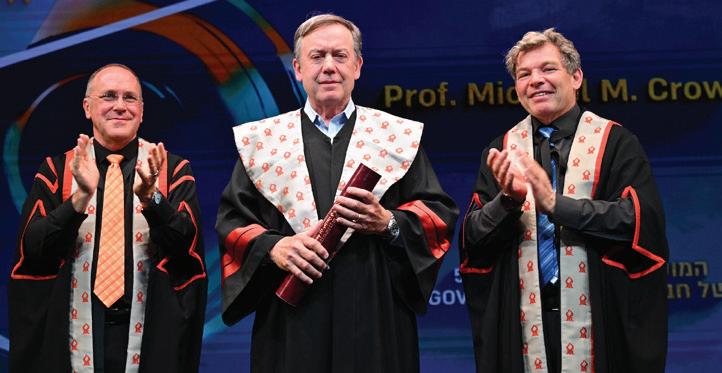
“Dr. Crow’s honorary degree celebrates his illustrious tenure as president of Arizona State University, highlighting his visionary leadership and remarkable contributions to the roles of both ASU and Ben-Gurion University as anchor institutions and growth engines for their entire regions,” Seserman said. JN
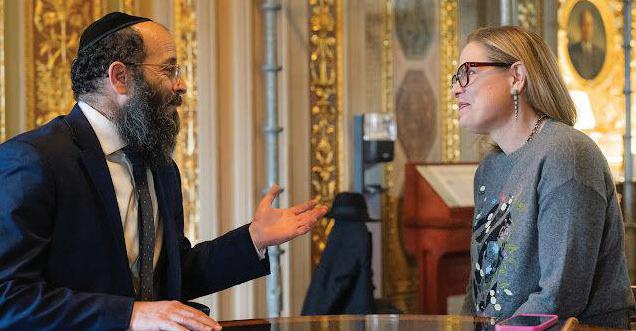
States
Arizonan selected as Wexner Davidson fellow Arizonan Ely Benhamo was recently selected as part of the inaugural cohort, or Class 1, of the Wexner Davidson Fellowship, a highly selective leadership development program in the Jewish community.
The fellowship is designed for Jewish professionals aged 26-36 working full-time in North American Jewish organizations and is offered by the Wexner Foundation, a philanthropic organization which focuses on developing Jewish professional and volunteer leaders in North America and public leaders in Israel, and in partnership with the William Davidson Foundation, a private family foundation. Benhamo is the senior director of major gifts at OneTable, a Jewish organization that helps young adults find their peers and build a Jewish community
around the Shabbat table.
Benhamo said that she’s both honored and grateful to be selected for the prestigious fellowship.
“I look forward to developing my leadership skills and advancing my career as a Jewish professional, alongside Wexner’s esteemed network and the impressive members of my fellowship class. I am particularly excited to further my efforts in building a diverse and more united Jewish community,” Benhamo told Jewish News in an email.
“We’re so honored that a member of the OneTable team was selected for this important leadership opportunity, and we are certain that the ways in which Ely grows and the skills she attains from this fellowship will only benefit OneTable and the goals we have set
Secular Coalition for Arizona (Secular AZ), a group advocating for separation of church and state in Arizona, has hired local activist Eddie Chavez Calderon as its new development director.
Chavez Calderon, formerly Arizona Jews for Justice (AJJ) campaign director, has garnered press for leading the Jewish response to the refugee crisis, pressing leaders on immigration reform and better treatment of ICE detainees.
Chavez Calderon migrated to the United States with his mother at age four, fleeing violence and danger. Growing up as an undocumented DACA recipient, he says he understood how opportunities in the U.S. are abundant but not always equitable.
Chavez Calderon says he has seen firsthand how a white Christian nationalist agenda, promoted by state-level organizations, has systematically stripped these communities of their rights and access to opportunities.
“My years of advocacy and fighting for justice align perfectly with Secular AZ’s mission to combat extremist faith-based ideologies that harm our communities,” said Chavez Calderon.
“As a proud Jew, my Judaism grounds me in the fight against religious extremism that uses extremist ideas to harm our local community,” says Chavez Calderon. “Attacks on women and minorities, wealth and racial inequality, and assaults on our immigrant community are on the rise. We must con-
Howard Sobelman, a member of Greater Phoenix’s Jewish community, was recently elected to the board of directors of One Step Beyond, Inc. (OSBI) a Phoenixbased nonprofit organization that provides comprehensive programming and services for adults (18+) who have intellectual disabilities. Sobelman is a partner in the Snell & Wilmer law firm, one of the largest in the Western United States.
One Step Beyond’s mission is to provide programs and services that empower individuals with intellectual disabilities to achieve optimal independence, meaningful employment, significant social relationships
and full participation in the community. The organization’s programs focus on life skills, employment readiness, culinary skills, education, fitness and the arts.
“I am deeply honored to join the board of this incredible organization,” said Sobelman in a press release. “Empowering individuals with intellectual disabilities is a mission I am passionate about and I am committed to leveraging my experience and resources to help One Step Beyond further its community services.”
In 2006, Sobelman spoke to Jewish News about his experience raising a child with autism. Within the community, Sobelman is a strong advocate for those with neuro-
The Library of Congress has awarded this year’s “Discovery or Exploration in History” prize to W. Ira Parsons, a Jewish freshman at Chaparral High School in Scottsdale, for his work, “The Fastest Man On Earth: How Col. Dr. John Stapp Revolutionized Space Medicine.”
Parsons was one of 500,000 students globally who entered historical research projects in this year’s National History Day® competition, held June 9–13 at the University of Maryland. The 2024 contest
out for ourselves,” noted OneTable’s Chief Advancement Officer Irit Gross.
The three-year Wexner Fellowship offers opportunities for cohort-based learning, peer networking, mentorship and immersive experiences, including a week in Israel. Fellows will benefit from coaching, personalized Jewish learning and will receive additional funding for professional development. Wexner Davidson Fellows will join the Wexner Foundation’s network of over 3,000 professional and volunteer leaders in North America and Israel.
“It is particularly meaningful to launch the Wexner Davidson Fellowship in this time when emerging Jewish leaders need a deep reservoir of courage and sharp leadership skills. This diverse cohort will generate a
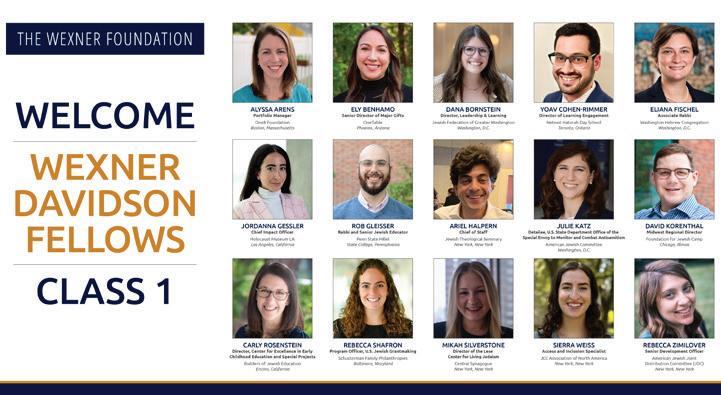
vision for our strong and vibrant future,” said Rabbi B. Elka Abrahamson, president of The Wexner Foundation, in a press release. “The opportunity to nurture a rising generation of professional talent is one the Wexner and Davidson Foundations, partners for nearly two decades, cherish. The inaugural class of the Wexner Davidson Fellowship represents the best of us today and tomorrow.” JN
theme was Turning Points in History.
Winners from all 50 states, Washington D.C., U.S. territories, and international schools were invited to compete in the national round. 540 historians and education professionals served as judges. The Library of Congress awards its “Discovery or Exploration in History” prize to an outstanding National History Day® project in any category on American or international discovery or exploration. This year’s 50th Anniversary Honorary Committee
tinue to resist hate and extremist ideas and policies. Our state and its people have a long history of resilience and struggle, much like the beautiful vegetation in the desert that blooms despite all odds.”
A spokesperson for Secular AZ said this also gives the organization an opportunity to bring attention to the nature of their work that impacts immigrants and Jewish people in Arizona.
“Christian nationalism is fundamentally antisemitic. Jews are one of over a dozen religious groups in Arizona who don’t subscribe to Christian nationalist views on abortion; who don’t want evangelical doctrine pushed on their kids in schools; and who are marginalized every time politicians push
diversity. He serves as board chair for First Place AZ, a residential development that supports autistic adults. He also serves on the board of the Southwest Autism Research and Resource Center, an organization committed to advancing opportunities for individuals with autism and their families.
Sobelman was recently recognized by Chambers USA: America’s Leading for Business for his Intellectual Property practice and is an AV Preeminent lawyer as designated by Martindale-Hubbell. He is recognized by IAM Patent 1000, Intellectual Property Magazine, The Best Lawyers in America and Super Lawyers. He was also named a
included, among others, Librarian of Congress Carla Hayden; Archivist of the United States Colleen Shogan; Secretary of the Smithsonian Lonnie Bunch; historians Doris Kearns Goodwin, Douglas Brinkley, Heather Cox Richardson, and Walter Isaacson; documentary filmmaker Ken Burns; and journalists Jake Tapper, Jonathan Capehart, Judy Woodruff, and Wolf Blitzer.
“Participating in the National History Day National Contest in 2024 is a special
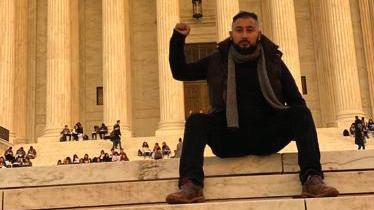
the white supremacist myth that America is a Christian nation.”
Secular Coalition for Arizona and Secular Communities for Arizona — otherwise known as Secular AZ — advocate for state and local government free from religious preference. JN
Phoenix Lawyer of the Year for patent law, copyright law, and IP litigation for several years.
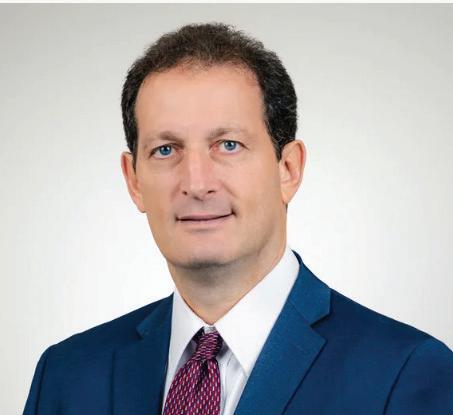
“Howard’s dedication to empowering individuals with intellectual disabilities aligns perfectly with our mission at One Step Beyond. His extensive experience and advocacy within the neurodiverse community will undoubtedly bring valuable insights and leadership to our board of directors,” said Madison Blanton, CEO of One Step Beyond, Inc., in a press release. JN
honor,” said NHD Executive Director Dr. Cathy Gorn. “As the organization celebrates its 50th anniversary, the students at the National Contest witnessed history. They have shown an incredible level of critical thinking, analysis, and research skills that will benefit them beyond their participation in NHD. I am proud of the students’ achievements this contest year and look forward to how they apply the skills they developed during their research to their future careers and lives.” JN
JACOB GURVIS | JTA
On the morning of Oct. 7, Rabbi Erez Sherman was preparing for the Yizkor memorial service at his Conservative synagogue, Sinai Temple in Los Angeles. He had written a sermon, somewhat presciently, about memory. It was titled “Hard to Say Goodbye.”
Then he received a text message from his predecessor, Rabbi David Wolpe, who was three hours ahead in Boston: “Change your sermon.”
News had broken about Hamas’ surprise attack on Israel, and while Sherman said he typically doesn’t use technology on Shabbat and holidays, it became clear that this was no typical holiday. For his sermon that day, Sherman ended up reading text updates from someone in a shelter in Ashkelon, near the Gaza border.
Now, as rabbis across the United States prepare their sermons for the upcoming High Holidays, the first since Oct. 7 sent shockwaves across the Jewish world, many
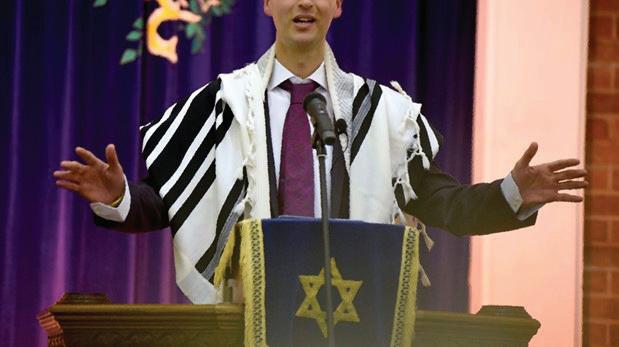
are acutely aware that similar last-minute changes could be needed yet again. As the Israel-Hamas war continues and the U.S. presidential election approaches,


• Shabbat services held at the JCC (Zooming also)
the volume and pace of news show no sign of abating. For any rabbi interested in preaching on current events, that uncertainty presents a challenge.
But as Rabbi Nicole Guzik, Sherman’s wife and co-senior rabbi, points out, it’s a challenge with which rabbis are — often somberly — familiar.
“I hate to say it, but look what has happened during the months of September and October,” Guzik said. “What was it like to be a rabbi during 9/11? What was it like to be a rabbi during the Yom Kippur War? Being a rabbi is being able to pivot and to give meaning and significance and the grounding of Torah to current events.”
Rabbi Jennifer Frenkel, the senior rabbi at Congregation Kol Ami, a Reform synagogue in Cherry Hill, New Jersey, said High Holiday sermon-writing often boils down to “the art of procrastinating.” That’s especially true, she added, when the holidays fall as late as they do this year — Rosh Hashanah begins Oct. 2, nearly three weeks later than it did last year.
“I think clergy have learned a lot since
Please



• High Holidays at Holiday Inn Express Scottsdale (Zooming
• Shabbat services held at the JCC (Zooming also) • High Holidays at Holiday Inn Express Scottsdale (Zooming also)



Please call 602-376-4392 with any questions

Please call 602-376-4392 with any questions
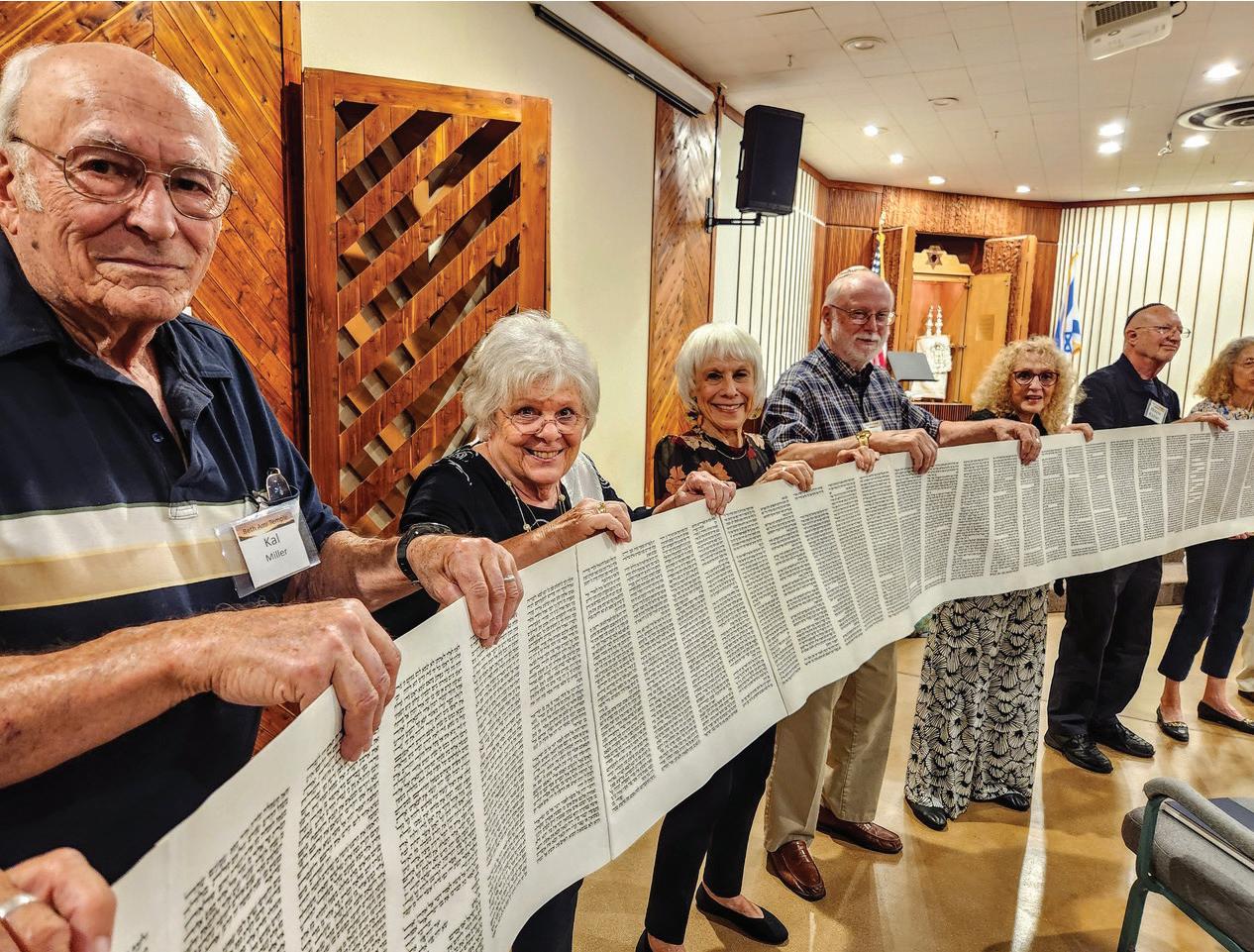
by Andra Karnofsky
Giftpack includes 1 lb. sweet, whole wheat or traditional white round hallah with or without golden raisins, 8 oz. jar of golden honey, a shiny red apple and a personalized New Year’s card.
$30 (includes shipping) call: 888-520-9080 email: sales@challah.com online: www.heavenlyhallah.com


SERMONS CONTINUED FROM PAGE 19
9/11, since all these things tend to hit around the holidays, about being open to needing to scrap everything we’ve thought of and start again,” Frenkel said.
Frenkel, who plans to speak about current events for one of her High Holiday sermons, said she has been collecting resources and brainstorming with colleagues. But while in a typical year she would likely have an initial draft by this point, Frenkel said she has not yet started writing that sermon.
“That process, I imagine, is going to start much later than it has,” Frenkel said.
“Certainly with the situation in Israel ever evolving, the political climate in the country. So that’s kind of where I am — not very far at all. But I think that’s the best place to be right now, just staying open to the meaning that we’re finding in the day to day.”
Guzik, who is planning to speak about the Gaza war on Rosh Hashanah, said the conflict has actually simplified rabbis’ preparations in one key way — when it comes to choosing sermon topics.
“You know you’re going to speak about Israel,” Guzik said. “I would be shocked if one of the five sermons that people deliver, [if] one’s not about Israel, that would be a very hard thing for me to hear. I think it kind of relieves that uncertainty. I think the question will be the direction.”
Rabbi Ariel Rackovsky, who leads Congregation Shaare Tefilla, a Modern Orthodox synagogue in Dallas, said he has recently been writing his Shabbat sermons later than usual and, where possible, avoiding references to specific events that could quickly become outdated.
For the High Holidays, he said, he plans to keep his sermons focused on broader subjects that can be written ahead of time with little risk of requiring changes, and when he talks about Israel, current events will not be “the sole focus” of his remarks.
“Given that the specific reality may change, not just from one day to the next but from one hour to the next, my discussions are going to focus on the types of themes that you can prepare for in advance, that you can anticipate,” Rackovsky said.
Michele Lowe, a playwright who advises rabbis across the country on their sermons, said many of the rabbis she is working with ahead of this High Holiday season are planning to speak about the war and antisemitism, even if they gave similar sermons last year or in the months since Oct. 7.
Lowe is advising roughly two dozen rabbis on 37 sermons for this fall — her largest workload since she began moonlighting as a so-called “rabbi whisperer.” Most of her clients are Reform rabbis and the majority are women, she said.
“WHAT WAS IT LIKE TO BE A RABBI DURING 9/11? WHAT WAS IT LIKE TO BE A RABBI DURING THE YOM KIPPUR WAR? BEING A RABBI IS BEING ABLE TO PIVOT AND TO GIVE MEANING AND SIGNIFICANCE AND THE GROUNDING OF TORAH TO CURRENT EVENTS.”
RABBI NICOLE GUZIK
Lowe said that any rabbi who chooses to speak about the war knows that they will likely need to continuously edit their sermons until the day they deliver them.
“Because this is something that is unfolding literally by the day, I think that if they are going to be preaching about the war, for example, they know that,” Lowe said. “It’s absolutely not a surprise.”
Lowe said the current moment reminds her of another recent crisis that accelerated ahead of the High Holidays: the COVID-19 pandemic. In 2021, even as vaccination rates increased, the spread of the Delta variant cast uncertainty over how synagogues would approach the holidays.
“Everyone thought in July of 2021, everybody’s going to stay healthy, things are going to be OK,” Lowe said. “And then what ended up happening was, the more the summer came on, a lot of those sermons had to get rewritten.”
On the plus side, Lowe said, giving a sermon about the war or other current events during the High Holidays provides rabbis a luxury often not available to them on a typical Shabbat: Time.
While she usually encourages brevity — “I’m of the belief nobody ever complained that the sermon was too short,” she quipped — Lowe said High Holiday sermons are often closer to 20 minutes, sometimes twice as long as a typical Shabbat offering.
As rabbis tackle — or revisit — these topics on the High Holidays, length is not the only factor to weigh. There’s also the question of navigating the political climate in one’s own congregation, a reality that differs in each community.
At Sinai Temple in Los Angeles, Sherman said the clergy have historically tended to steer clear of politics — an approach that drew criticism when Wolpe argued for it.
“We don’t give political commentary, we give spiritual food for the soul, and I think that’s an important aspect,” Sherman said. “Anybody can go read the news on whatever site they would like to, but when you’re going to come to a synagogue on Shabbat, on holidays, on High Holidays, I think people want to feel connected three ways: To each other, to a deeper sense of themselves and to God.”
Sherman said his community includes members of all political stripes, and that he and his colleagues “really try to present ideas of how to think and not what to think.” That apolitical approach does
not apply to Israel, however, which he said has been a topic of conversation and education “literally every week” since Oct. 7.
In fact, that’s a practice Sherman said his congregants have validated. About five or six months after the war began, Sinai Temple’s rabbis asked lay leaders whether they should stop talking about Israel.
“When we asked our leaders, should we go back to what we were doing preOct. 7, they said, ‘No, we’re not enjoying what you’re doing, but we crave it,’” Sherman said.
To Frenkel, the appeal of an Israel sermon — for both the rabbi and the congregation — is the opportunity to use Jewish tradition and text to draw meaning out of a difficult situation, an exercise that can be repeated, even on the same topic.
“For many [congregants], they haven’t been in the synagogue to hear every Israel sermon that we’ve given, or every sermon on antisemitism, or every sermon on the meaning that we find in community right now,” Frenkel said. “These sermons are kind of the heavy hitters. Are we going to echo some of the things that have already been said this year? Absolutely. But I think there’s always a new angle.”
Rackovsky has experience revising his sermons quickly. In 2018, AmericanIsraeli activist Ari Fuld, whom Rackovsky knew personally and who had a relationship with Rackovsky’s synagogue, was stabbed and killed by a Palestinian teen in the West Bank days after Rosh Hashanah. Rackovsky said he found a way to incorporate Fuld’s “legacy and what he stood for” into his Yom Kippur sermon that year.
If he has to adapt his sermons this fall, he hopes it’s for a brighter reason.
“I hope that that pattern doesn’t hold up this year,” he said. “But on the other hand, there’s already been so much bad news that it’s not like you’re starting from a place where you’re talking about how great things are and suddenly they’re not.”
While last-minute changes to High Holiday sermons have historically been prompted by tragedy — 9/11, COVID spikes, war in Israel — Guzik isn’t ruling out the possibility that good news could throw a wrench into her sermon this year.
“Say suddenly on erev Rosh Hashanah, I get news that — God willing it happens much earlier — a deal has been reached and the hostages are being released, you better believe that my sermon is changing,” she said. JN

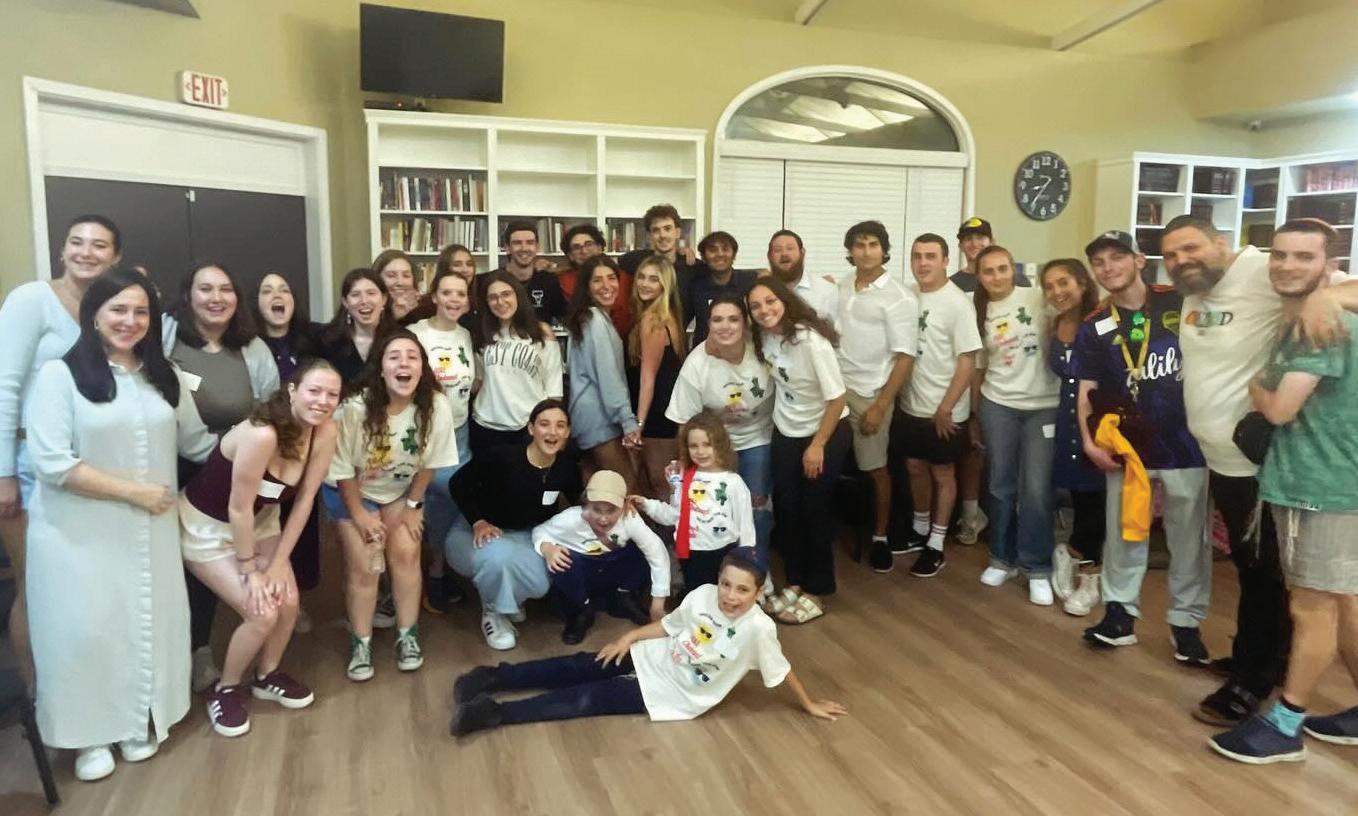
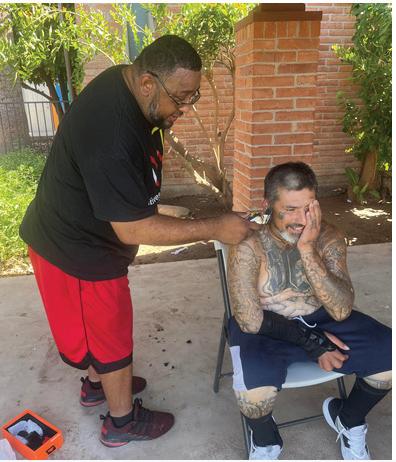
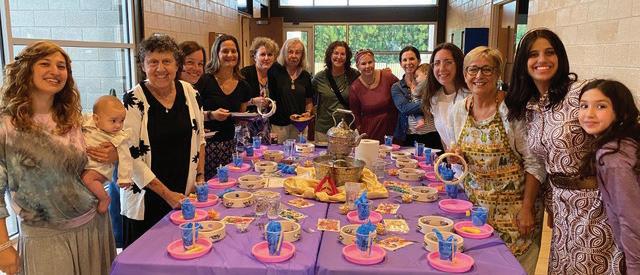
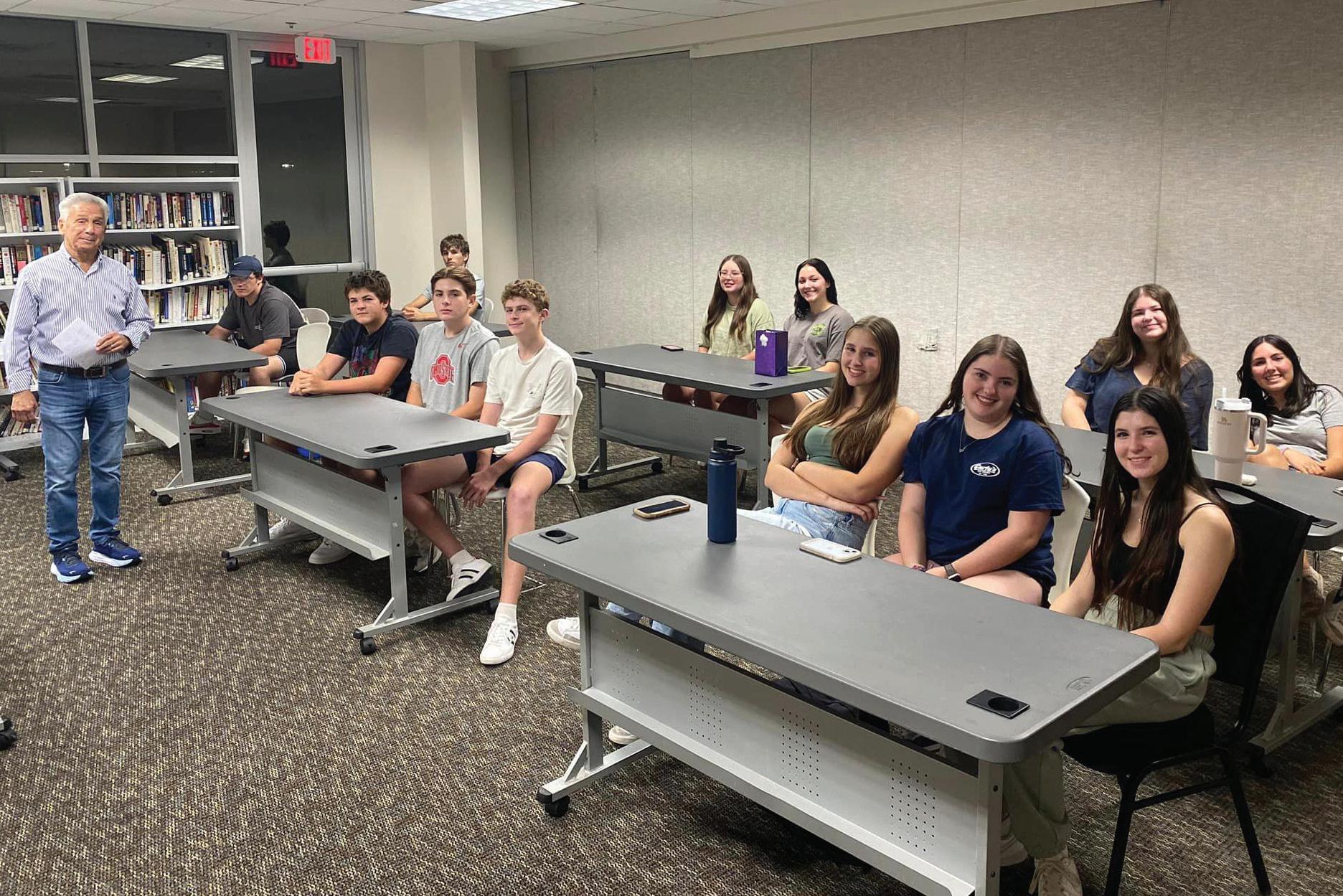

SUNDAY, SEPT. 8
Israel: A Nation and its People:
2-3:30 p.m. Location provided upon registration. Join Rabbi Michael Beyo, CEO of East Valley Jewish Community Center, to learn the history of the land and its conquerors from Biblical times to 2005. The program is hosted by Sun Lakes Jewish Congregation Friends of Israel and the SLJC Adult Education Committee in partnership with the East Valley JCC. Cost: Free. For more information, visit evjcc.org/event/ israelfacts/2024-09-08/.
FRIDAY, SEPT. 6
Best Practices for Including the Disability Community in Programs and Events: 10-11:30 a.m. Online via Zoom. Join Gesher Disability Resources and the Center for Jewish Philanthropy of Greater Phoenix for a virtual training program for Jewish clergy, professionals and lay leaders who are looking to deepen their ability to engage the disability community in their organizations. Cost: Free. For more information, contact engagement@ phoenixcjp.org.
Comedy with a Twist of Trauma: 7:30-9:30 p.m. Scottsdale location provided after ticket purchase. Join 3GAZ and Gesher Disability Resources for an evening of comedy by Pamela Schuller. Cost: $36 per person, $76 per person VIP. For more information, visit phoenixhsa.formstack.com/ forms/3g_comedy_with_a_twist.
SUNDAY, SEPT. 8
Back-to-School Clothes Swap: 10 a.m. The New Shul, 1825 E. Paradise Lane, Scottsdale. Bring your used clothes and shoes and leave with the next size up. Clothes for ages 18 and under. For more information and to RSVP, contact kutychiropractic@yahoo.com.
Nationalism and Antisemitism: The Case of Poland: 12-1:30 p.m. Online via Zoom. Join the Center for Jewish Studies at ASU for a presentation by author and award-winning journalist from Poland, Konstanty Gebert. Cost: Free. For more information, visit jewishstudies.asu.edu/ JSPoland.
CTeen Kickoff: 7-9 p.m. CTeen Lounge, 1940 E. Camelback Road #206, Phoenix. Join CTeen at its new lounge, a welcoming space for all teenagers, for food, entertainment and an airbrush artist. Cost: Free. For more information, visit cteenphoenix.com/events/kickoff-new.
TUESDAY, SEPT. 10
Getting Started with Family History Research: 1-2:30 p.m. Online. Join the Jewish Family & Children’s Service Center for Senior Enrichment and Creative Aging for a virtual genealogy presentation by Duane Roen. Cost: Free. For more information, visit app.getoccasion.com/p/n/ GSrb52lr.
THURSDAY, SEPT. 12
Has Religious Zionism Lost its Way? Reclaiming Important Lost Voices: 10-11 a.m. Online. Join Valley Beit Midrash for a presentation by Rabbi Avidan Freedman, an educator at the Shalom Hartman Institute’s high school and post-high school program and an activist who founded Yanshoof, an organization dedicated to establishing moral limits for Israeli weapons exports. For more information, visit valleybeitmidrash.org/event/has-religious-zionism-lostits-way-reclaiming-important-lost-voices.
SUNDAY, SEPT. 15
Brunch: The Original Culinary Movers & Shakers: 9:30 a.m. Ina Levine Jewish Community Campus, 12701 N. Scottsdale Road, Scottsdale. Join Greater Phoenix Vaad Hakashrus for a presentation “Jews as Transporters of Food” by Jerusalem-based scholar-in-residence Joel Haber. For more information, visit jewishphoenix.com/events/ brunch-the-original-culinary-movers-shakers/.
Preventing Veteran Homelessness: 9:30 a.m. Oakwood Country Club, 24218 S. Oakwood Blvd., Sun Lakes. Join Jewish War Veterans Post 619 for a presentation by Rachel MaschPerez, community engagement coordinator at Catholic Charities MANA House. Cost: Free. For more information, contact Arthur Uram, 702884-4175 or uramarthur@gmail.com.
Rosh Hashanah Farmer’s Market: 9:30 a.m. Chabad of Mesa, 941 S. Maple Ave., Mesa. Join Chabad of Mesa and shop for the High Holidays and Jewish Kids Club activities. Cost: Free. For more information, visit chabadmesa.com.
STEAM Sunday for Preschool Kids: 10-11 a.m. Pardes Jewish Day School, 12753 N. Scottsdale Road, Scottsdale. Join Pardes Jewish Day School, PJ Library and the Bureau of Jewish Education of Greater Phoenix for STEAM activities (science, technology, engineering, art and math) geared for children ages 2-5 with an adult. Cost: Free; register by Sept. 11. For more information, visit jewishphoenix.com/events/ steam-sunday-for-preschool-kids/.
Café Europa: 1-3 p.m. Congregation Beth Israel, 10460 N. 56th St., Scottsdale. Join the Phoenix Holocaust Association for a luncheon and program for Holocaust survivors, family and friends. Cost: Free for survivors and drivers; $20 guest. For more information, visit phxha. com/connect/#cafe-europa.
Play Mahjong: 1:30-4:30 p.m. Congregation Or Tzion, 16415 N. 90th St., Scottsdale. Join the Womens League of Congregation Or Tzion for an afternoon of mahjong. Cost: $15 WLCOT members; $18 Ort Tzion member and guest. For more information, visit otaz.org/playMJ.
TUESDAY, SEPT. 17
September Gathering Professional Advisory Network: 4:30-6 p.m. Ina Levine Jewish Community Campus, 12701 N. Scottsdale Road, Scottsdale. Join the Professional Advisory Network, a program of the Center for Jewish Philanthropy of Greater Phoenix, for a presentation by Beth Jo Zeitzer, CEO/Designated Broker R.O.I. Properties and Myra Schindler, executive director of the Bureau of Jewish Education of Greater Phoenix. $18 per person. For more information, visit phoenixcjp.regfox.com/ pandomoregood.

WEDNESDAY, SEPT. 18
High Holiday Challah Bake: 8-9:30 p.m. Congregation Beth Tefillah, 6529 E. Shea Blvd., Scottsdale. Join Yesh Tikva for an evening of kneading, braiding and holding hope, In partnership with Congregation Beth Tefillah, Project Inspire and Fruitful, with a challah braiding demo by R&B Kosher Bakery. Cost: $36 per ticket. For more information, visit yeshtikva. org/challah-bake-scottsdale-registration.
SUNDAYS
B.A.G.E.L.S: 9-11 a.m.; last Sunday of the month. Valley of the Sun Jewish Community Center, 12701 N. Scottsdale Road, Scottsdale. Grab a bagel and a cup of coffee at Bagels And Gabbing Every Last Sunday and enjoy some time with your friends and make new ones. You must register to attend. Bagels and coffee will be provided. Cost: Free for members, $5 for guests. For more information and to register, visit vosjcc.org.
THURSDAYS
Storytime at Modern Milk: 9:30 a.m. Modern Milk, 13802 N. Scottsdale Road, #163, Scottsdale. Storytime for babies, toddlers and preschoolers. Integrates children’s books and songs while giving parents new ideas for play. Cost: $5. For more information and to register, visit modernmilk.com/after-baby.
SUNDAYS
Chassidus Class: 9 a.m. Online. Learn about the Chasidic movement with Rabbi Yossi Friedman. Use this link: ChabadAZ.com/LiveClass. Cost: Free. For more information, visit chabadaz.com.
Jewish War Veterans Post 210: 10 a.m. Online. Any active duty service member or veteran is welcome to join monthly meetings, every third Sunday. Cost: Free. For more information, email Michael Chambers at c365michael@yahoo.com.
Sundays are for the Family Weekly Feed: 3-5 p.m. Tempe Beach Park, 80 W. Rio Salado Pkwy., Tempe. Join Arizona Jews for Justice and AZ HUGS for the Houseless every Sunday to serve food to those in need. For more information and to RSVP, email Arizonajews4justice@gmail.com.
MONDAYS
Pomegranate Guild of Judaic Needlework, Desert Cactus Chapter: 10 a.m. The Oasis at Sagewood, 4555 E. Mayo Blvd., Phoenix. The guild meets the third Monday of the month, adjusted when necessary to accommodate Jewish holidays. For more information, visit pomegranateguild.org.
Mahjong: 1:30-3:30 p.m. East Valley Jewish Community Center, 908 N. Alma School Road,
Chandler. Come play mahjong each week. For all levels. Cost: Free; registration required at evjcc.org/mahjong.
Ethics of Our Fathers: 7 p.m. Online. Learn with Rabbi Zalman Levertov. Use this link: bit. ly/2Y0wdgv. Cost: Free. For more information, visit chabadaz.com.
Quotable Quotes by our Sages: 7 p.m. Online. Learn with Rabbi Shlomy Levertov. Use this link: JewishParadiseValley.com/class. Cost: Free. For more information, visit chabadaz.com.
Learning to Trust in God: 7:30 p.m. Online. Learn with Rabbi Yossi Friedman. Use this link: ChabadAZ.com/LiveClass. Cost: Free. For more information, visit chabadaz.com.
Torah & Tea: 7:30 p.m. Online. Learn with Rabbi Yossie Shemtov. Cost: Free. For more information, visit Facebook.com/ChabadTucson.
Single Parent Zoom: 8 p.m. First and third Monday of every month. Join The Bureau of Jewish Education’s Family University single parents’ group for those looking to form friendships and build their support system with likeminded people. For more information or to register, visit bjephoenix.org/family-university.
TUESDAYS
Let’s Knit: 1:30 p.m. Ina Levine Jewish Community Campus, 12701 N. Scottsdale Road, Scottsdale. Share the pleasure of knitting, crocheting, etc. outside the social hall in the campus. Can’t knit? They will teach you! Every level welcome. Cost: Free. For more information, visit vosjcc.org.
Torah Studies: 7:30 p.m. Online. Learn with Rabbi Mendy Levertov. Use this link: ourjewishcenter.com/virtual. Cost: Free. For more information, visit chabadaz.com.
WEDNESDAYS
Torah Study with Temple Beth Shalom of the West Valley: 11 a.m.-12:30 p.m. Online. Weekly study group explores that week’s portion and studies different perspectives and debates the merits of various arguments. Intended for adults, Torah study is open to students of all levels. For more information, contact the TBS office at 623-977-3240.
Torah Study with Chabad: 12 p.m. Online. Take a weekly journey of Torah with Rabbi Yossi Levertov. Cost: Free. For more information, visit chabadaz.com.
History of the Jews: 7 p.m. Online. Learn the Jewish journey from Genesis to Moshiach with Rabbi Ephraim Zimmerman. Use this link: zoom.us/j/736434666. Cost: Free. For more information, visit chabadaz.com.
JACS: 7:30-8:30 p.m. Online. Zoom support group for Jewish alcoholics, addicts and their friends and family on the first and third Wednesdays of the month. Cost: Free. For more information, email jacsarizona@gmail. com or call 602-692-1004.
THURSDAYS
Ladies Torah & Tea: 10:30 a.m. Online. Learn about the women of the Torah with Mrs. Leah Levertov. Use this link: ourjewishcenter.com/ virtual. Cost: Free. For more information, visit chabadaz.com.
Talmud - Maakos: 11 a.m. Online. Learn with Rabbi Shlomy Levertov. Cost: Free. Use this link: JewishParadiseValley.com/YJPclass. For more information, visit chabadaz.com.
The Science of Everything: 11 a.m. Online. Explore the most fundamental work of Chassidut: the Tanya, with Rabbi Boruch. Use this link: zoom.us/j/736434666. Cost: Free. For more information, visit chabadaz.com.
Mindfulness Gatherings: 12 p.m. Online. Hosted by Hospice of the Valley via Zoom. Cost: Free. To join by phone, dial 1-253-215-8782, meeting ID 486 920 2119#, to get the Zoom link or for further questions contact Gill Hamilton at ghamilton@hov.org or 602-748-3692.
Weekly Mahjong: 1-3 p.m. Temple Solel, 6805 E. McDonald Drive, Paradise Valley. Join Temple Solel each Thursday afternoon for mahjong. Lessons available for beginners. Cost: Free. RSVP via email to dottiebefore@gmail.com so they know how many tables to set up.
Teen Discussions: 7-8:30 p.m. Online. Learn with Rabbi Tzvi Rimler. Use this link: cteen.clickmeeting.com/east-valley. Cost: Free. For more information, visit chabadaz.com.
SATURDAYS
Saturday Mindfulness Gatherings: 9:30 a.m. Online. Hosted by Hospice of the Valley. To join by phone, dial 1-253-215-8782, meeting ID 486 920 2119#. To get the Zoom link or for more information, contact Gill Hamilton at ghamilton@hov.org or 602-748-3692.
Book Discussion: 1:30-2:30 p.m. Online. Join Or Adam Congregation for Humanistic Judaism on the third Saturday of every month for a book discussion. For more information and to register, contact oradaminfo@gmail.com.
Shabbat
FRIDAYS
Shabbat in the Park: 10-11 a.m. Cactus Park, 7202 E. Cactus Road, Scottsdale. Join the Bureau of Jewish Education of Greater Phoenix monthly for music, parachute play, crafts and a family Shabbat experience. For more information, visit bjephoenix.org.
Welcome Shabbat: 11-11:30 a.m. Online. Celebrate Shabbat with the JFCS Virtual Center for Senior Enrichment. Each week a different guest host will lead the program with song and celebration. Cost: Free. For more information, visit jfcsaz.org/cse.
Shabbat at Beth El: 7:15 a.m. and 5:45 p.m on Zoom; 9:30 a.m. at Beth El Phoenix, 1118 W. Glendale. Ave., Phoenix or livestreaming on YouTube. Celebrate Shabbat with songs, blessings and teachings with Rabbi Stein Kokin the first Friday of every month. Special guests will be welcoming Shabbat during the remainder of the month. For more information or to join, visit bethelphoenix.com.
Erev Shabbat Service: 5:30 p.m. Online. Rabbi Alicia Magal will lead a service livestreamed for members of the Jewish Community of Sedona
and the Verde Valley. Cost: Free. For more information and to obtain the Zoom link, visit jcsvv.org/contact.
Shabbat Services: 5:30 p.m. nosh, 6:15 p.m. service; morning service has varying dates and times. Temple Chai, 4645 E. Marilyn Road, Phoenix. For more information, contact Joan Neer at jneer@templechai.com.
Shabbat Services with Sun Lakes: 5:30-6:15 p.m. Sun Lakes Chapel, 9240 E. Sun Lakes Blvd. North, Sun Lakes. Sun Lakes Jewish Congregation conducts this twilight service on Aug. 9. For more information, contact 480-612-4413.
Pre-Shabbat Kiddush Club: 6 p.m. Online. Say Kiddush with Rabbi Mendy Levertov. Cost: Free. Use this link: ourjewishcenter.com/virtual. For more information, visit chabadaz.com.
Shabbat Services: 6 p.m; 9:30 a.m. Congregation Or Tzion, 16415 N. 90th St., Scottsdale. Services are also live streamed at otaz.org/ livestream. For more information about services, events and membership, visit congregationortzion.org or call 480-342-8858.
Shabbat Service: 6-7 p.m.; Oneg at 5:15 p.m. Temple B’rith Shalom, 2077 Brohner Way, Prescott. Join Temple B’rith Shalom for a musical and spiritual Shabbat service. For more information, visit brithshalom-az.org.
First Friday Shabbat Services: 6:15 p.m.; Oneg at 7:15 p.m. Valley Unitarian Universalist, 6400 W. Del Rio St., Chandler. Join Congregation NefeshSoul for Friday night services the first Friday of each month in the sanctuary building of Valley Unitarian Universalist. For more information, contact Jim Hoffman at 480-329-3316.
Shabbat Services: 6:15 p.m; 10 a.m. Congregation Beth Israel, 10460 N. 56th St., Scottsdale. Services held in the Goldsmith Sanctuary. Participants must pre-register by Thursday at 5 p.m. Priority will be given to members first and then guests. If there are more requests than available seats a lottery system will be used. For more information or to make a reservation, visit cbiaz.org/shabbat-services.
Kabbalat Shabbat and/or Shabbat morning service: 6:30 p.m.; 10 a.m.; dates vary. Congregation Kehillah, 5858 E. Dynamite Blvd., Cave Creek. Join Rabbi Bonnie Sharfman and cantorial soloists Erica Erman and Scott Leader either in person or via Zoom. For safety reasons, please register ahead of time. For dates, visit congregationkehillah.org/event/. Register by emailing info@congregationkehillah.org.
Third Friday Shabbat: 7-9 p.m. Group meets at a North Scottsdale location. The Desert Foothills Jewish Community Association hosts a Shabbat service followed by a program. Contact 602-487-5718 for more information.
MONDAYS
Fitness Xpress Series with Zoe: 11-11:30 a.m. Online. Presented by JFCS Center for Senior Enrichment. Workout features weight and band exercises as well as yoga poses. Exercises will be demonstrated standing, but can also be done sitting in a chair. Cost: Free. For more information, visit jfcsaz.org/cse.
Sip & Schmooze: 11 a.m. milk + honey, 12701 N. Scottsdale Road, Scottsdale. Sip on kosher coffee or tea, enjoy a pastry and schmooze every second Monday of the month. RSVP appreciated to chani@sosaz.org or 602-4927670. For more information, visit sosaz.org.
Featured Presentation: 12:30 p.m. Online. Join Smile on Seniors Mondays and Wednesdays to
learn from a variety of presenters about topical issues, like Q&As with medical professionals, entertainers and lectures. Cost: Free. For more information, visit sosaz.org/virtual or email Rabbi Levi Levertov at levi@sosaz.org.
TUESDAYS
Movie Discussion Group: 11 a.m. Online. Join Smile on Seniors on the third Tuesday of every month hosted by Issy Lifshitz. Cost: Free. For full details and the movie of the month visit sosaz.org/virtual or email Rabbi Levi Levertov at levi@sosaz.org.
WEDNESDAYS
Fitness Fun with Zoe: 10-10:45 a.m. Online. Presented by JFCS Center for Senior Enrichment. Workout features light chair exercises with optional weights. Cost: Free. For more information, visit jfcsaz.org/cse.
Chair Yoga with Zoe: 11-11:45 a.m. Online. Presented by JFCS Center for Senior Enrichment. 45-minute chair yoga class. No prior yoga experience required. Cost: Free. For more information, visit jfcsaz.org/cse.
THURSDAYS
Memory Cafe: 10-11 a.m. first Thursday; 1-2 p.m. third Thursday. Online. Presented by Jewish
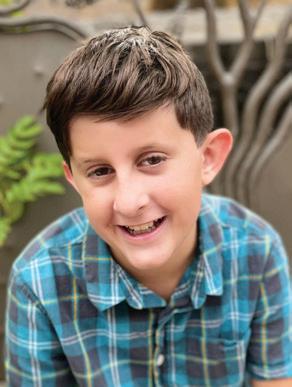
Family & Children’s Service. Program for those with changes in their thinking or memory, mild cognitive impairment due to Alzheimer’s disease or a related disorder, along with their care partners. For more information, visit jfcsaz.org/our-services/older-adult-services/ memory-cafe/.
In the Kitchen with Benita: 12:30 p.m. Join Smile on Seniors on the fourth Thursday of every month for some delicious cooking or baking fun! Cost: Free. For full details visit sosaz.org/virtual or email Rabbi Levi Levertov at levi@sosaz.org.
FRIDAYS
Welcome Shabbat: 11-11:30 a.m. Online. Celebrate Shabbat with the JFCS Virtual Center for Senior Enrichment. Each week a different guest host will lead the program with song and celebration. Cost: Free. For more information, visit jfcsaz.org/cse.
Musical Friday: 12:30 p.m. Online. Join Smile on Seniors on the first Friday of every month for a musical presentation. Cost: Free. For full details visit sosaz.org/virtual or email Rabbi Levi Levertov at levi@sosaz.org. JN
Owen Frederick Ketchel will become a bar mitzvah on Oct. 19, 2024, at Temple Solel. He is the son of Aron and Kristy Ketchel of Paradise Valley.
Owen’s grandparents are Steve and Marta Ketchel of Tucson and Tom and Louise Wilson of Hemet, California.
For his mitzvah project, Owen collected book donations and helped organize a Book-in-a-Bag community service project. Students at his school decorated a paper bag with the theme of the book inside and donated them to Valley of the Sun United Way to inspire literacy.
A student at Madison Park Middle School, Owen enjoys reading, spending time with friends and family and playing soccer, piano, trombone and chess. JN

Asher Joshua Silverman became a bar mitzvah on Aug. 24, 2024, at Congregation Beth Israel. He is the son of Diane Silverman of Peoria and David Silverman of Glendale.
Asher’s grandparents are Ron and Cathy Caplan of Mesa and Steve and Lucy Silverman of Grand Rapids, Michigan.
A student at Paseo Verde Elementary School, Asher enjoys watching and playing basketball; is an avid collector of Pokémon cards; plays in the band; likes to dance; takes care of his two guinea pigs; and enjoys spending time with his brothers, family and friends. JN
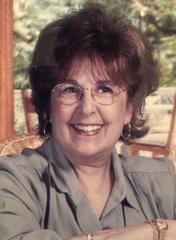
Trudi B. Adler
Trudi B. Adler (née Lippert) died peacefully in her sleep on Aug. 18, 2024. She was a master teacher for 44 years in the Paradise Valley and Hicksville, New York, school districts.
Trudi was an avid fan and season ticket holder for the Phoenix Suns and Arizona Diamondbacks. She loved to knit, sew, read, cook and bake.
She is survived by her husband, William (Bill) Adler; her stepdaughters Cindy and Susan; grandchildren Jennifer, Simon and Samson; nieces Stephanie, Amanda and Madison; nephews Brett, Jake and Jesse; and sister, Susan.
Burial is at Sinai Cemetery, 24210 N. 68th St., Phoenix, at 8:30 a.m. on September 8. Shiva service directly following at Congregation Beth Israel, 10460 N. 56th St., Paradise Valley.
In leu of flowers, please send a donation to Congregation Beth Israel Religious School Scholarship Fund.


